
JOINT POSITION OF 29 NGOS: MARIJANA CAMOVIĆ VELIČKOVIĆ NOMINATED FOR THE RTCG COUNCIL
02/07/2025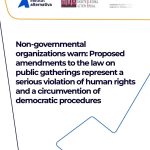
NON-GOVERNMENTAL ORGANIZATIONS WARN: PROPOSED AMENDMENTS TO THE LAW ON PUBLIC GATHERINGS REPRESENT A SERIOUS VIOLATION OF HUMAN RIGHTS AND A CIRCUMVENTION OF DEMOCRATIC PROCEDURES
02/07/2025THE KEY TO EU MEMBERSHIP LIES IN THE JUDICIARY AND THE CONSTITUTIONAL COURT, POLITICAL WILL FOR KEY REFORMS IS ESSENTIAL
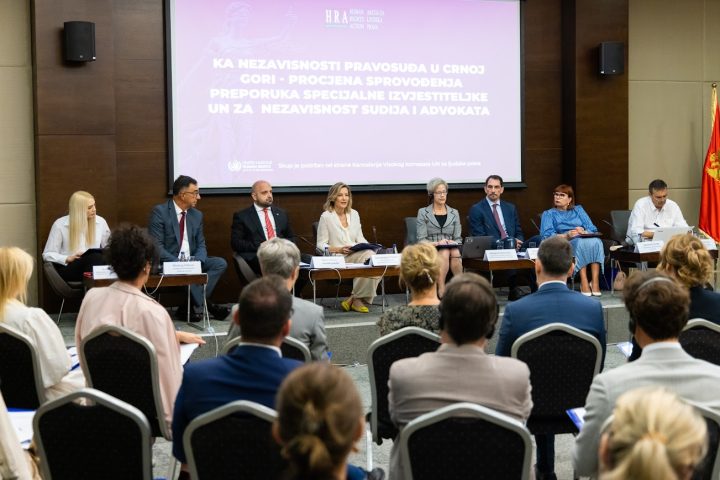
To close Chapters 23 and 24, which are crucial for completing Montenegro’s negotiations on accession to the European Union, the most important changes are those concerning the judiciary and the Constitutional Court. This was the key message from the conference “Towards Judicial Independence in Montenegro – Assessing Implementation of 2024 Recommendations by the UN Special Rapporteur on the Independence of Judges and Lawyers in Montenegro”, organized by the NGO Human Rights Action with the support of the Office of the UN High Commissioner for Human Rights.
Where Does Montenegro’s Judiciary Stand Today Compared to 2024?
One year after the publication of the Report by the United Nations Special Rapporteur Margaret Satterthwaite on the state of Montenegro’s judiciary, an opportunity has arisen to assess what has been done within the judiciary and prosecution. Legal adviser at Human Rights Action (HRA), Amra Bajrović, stated that the report clearly pointed out the key challenges in the Montenegrin judicial system that still remain to be addressed.
“Out of the total 36 recommendations that the Special Rapporteur made to Montenegro, only two have been fully implemented, partial progress has been made on 23, while 11 recommendations have not been implemented, nor is there any indication that they will be”, Bajrović concluded.
Among the implemented recommendations, she highlighted the introduction of additional safeguards against conflicts of interest and political influence for members of the Judicial and Prosecutorial Councils, as well as the continuation of training for judges and prosecutors on reducing discrimination and protecting the rights of vulnerable groups.
Among the recommendations that have not been implemented are continued pressures on judges and prosecutors, while lawyers remain subject to verbal and physical attacks. Although the Special Rapporteur recommended that judicial vacancies be filled without delay, on average, it takes the Judicial and Prosecutorial Councils about six months from the announcement of a vacancy to the appointment of a candidate.
“The inertia of the legislative branch has resulted in the Judicial Council, Prosecutorial Council and Constitutional Court not being fully constituted. There have been no activities related to the Special Rapporteur’s recommendation that the selection of members of the Judicial and Prosecutorial Councils from among distinguished legal professionals be entrusted to a non-political body”, Bajrović stated.
She emphasized that it is therefore necessary to “intensify efforts – both normatively and in terms of consistent, effective implementation of adopted measures in practice – in order to achieve the principles of independence, efficienc and accountability in the judiciary”.
The United Nations Special Rapporteur on the independence of judges and lawyers, Margaret Satterthwaite, also commented on the current state of Montenegro’s judiciary.
“It can be said that Montenegro has improved transparency and accountability in certain areas of the judiciary. However, problems remain, such as a lack of accountability, institutional blockages, political interference, and inadequate working conditions”, said Satterthwaite, stressing that political will is essential for the implementation of the recommendations.
Tea Gorjanc-Prelević, Executive Director of Human Rights Action, emphasized that Montenegro’s EU membership depends on how the executive and legislative branches treat the judiciary and the Constitutional Court.
“The executive and legislative branches must accept the fact that the keys to EU accession lie in the hands of the judiciary and the Constitutional Court. If they want to meet the expectations of those who elected them, they must work together as a team to strengthen institutions”, said Gorjanc-Prelević. She underlined the need to ensure the quality of these institutions.
A similar opinion is held by the President of the Supreme Court, Valentina Pavličić.
“Chapter 23, as a condition for EU accession, cannot be fulfilled by the Parliament or the Government. It can be fulfilled by the 264 judges currently in the system”, she said, adding that the Satterthwaite report realistically “reflects the systemic problems”.
“When I took office in December, I found a system that had long been left to ‘the ravages of time,’ where judges had to fend for themselves”, said Pavličić. The root cause, she added, lies in inadequate solutions and poor planning within the Judicial Council.
Chief State Prosecutor Milorad Marković said that the situation in the prosecution is better today than it was previously. The number of prosecutors has increased from 85 to 114. He agreed with other conference participants that Chapters 23 and 24 rest heavily on the shoulders of the judiciary and prosecution.
“When it comes to the prosecution, I would say that we have largely advanced the process and now the judiciary needs to carry it through to completion”, explained Marković.
He also stressed the importance of each branch of government strictly adhering to its constitutionally defined responsibilities. He expects all actors in political and public life to refrain from pressures, suggestions, or interpretations that could jeopardize the institutional integrity and independence of the prosecution.
“Just as justice is not justice unless it is seen to be done, so too the independence of the State Prosecutor’s Office cannot exist if there is a public perception that it is not independent. Populism, which is pervasive in Montenegro, is the greatest threat to the independence of the State Prosecutor’s Office — especially when it comes to the perception being created, which does not reflect the reality that this Office is independent in its work, and that every prosecutor must act independently, free from both internal and external influence”, emphasized Marković.
Miodrag Ilićković, a member of the Judicial Council, believes that Montenegro cannot ensure the stability of its judiciary and Constitutional Court without strong political will.
“What is needed to recover the judiciary? First, the authorities must decide whether they even want a judiciary! Do we want an independent judiciary or one controlled by political parties? Is politics afraid of the judiciary’s powers? Does it have the courage to relinquish control to the judiciary?” Ilićković asked.
Minister of Justice Bojan Božović acknowledged that there has been some progress in the judiciary toward securing an IBAR (Interim Benchmark Assessment Report), but he is not satisfied with the pace.
“Sometimes, slowness is part of the process. The judiciary cannot function as an isolated island. For public perception to be positive, citizens must trust the judicial branch”, he said.
The Minister commented on the process of selecting Constitutional Court judges, saying it must change because it does not align with meritocracy.
“We must introduce more meritocratic standards. Through amendments to the Law on the Constitutional Court, we need to raise the issue of merit-based selection for Constitutional Court judges. Current criteria—which are hardly criteria—require only that one be 40 years old, have 15 years of experience, be a lawyer, and win a sufficient political majority. You could become a Constitutional Court judge without having spent a single day in the judiciary. Hypothetically, we could have seven Constitutional Court judges without a bar exam who are overturning Supreme Court decisions”, Božović stated.
The importance of consistency in the judicial system was highlighted by the Ombudsman, Siniša Bjeković, who noted that the recommendations of Margaret Satterthwaite helped shape a new law regulating his institution’s work.
“In terms of independence and all other aspects, the Ombudsman institution must be among those responsible for establishing standards in the field of rights and freedoms. It would be problematic if one position comes from the prosecution or courts and another from the Ombudsman’s office”, Bjeković said.
In her opening address, UN Special Rapporteur Margaret Satterthwaite also spoke about the importance of the legal profession for the judicial system.
“The Bar Association must show leadership when it comes to training and upholding standards and extend a helping hand to vulnerable groups. Such leadership is essential to ensure the Bar retains its autonomy and independence. An independent bar is crucial for the rule of law, and it is safeguarded through rigorous practices”, said Satterthwaite.
Aleksandar Đurišić, Vice President of the Bar Association of Montenegro, said that work is underway on a new Code of Ethics, since the current one dates back to 1999 and was adopted from Serbian legislation. “It’s true that not much emphasis is placed on the bar exam (which includes ethics and professional standards), and everyone passes—except for one candidate who failed because he remained silent”, Đurišić said.
Can Vetting Jeopardize the Closure of Chapter 23?
Montenegro must not allow anyone with ties to crime to remain in the judicial system, stated Valentina Pavličić, President of the Supreme Court. However, she acknowledged that the vetting process could slow Montenegro down on its path to European Union membership.
“If the ultimate goal is for Montenegro to complete and close Chapter 23 by 2026, how can we begin vetting in 2025? On what legal basis? With an open vetting process, we cannot close that chapter”, said Pavličić.
She reminded that discussions around checking the competence and integrity of judicial officials have been ongoing for five years, but that decisions on pre-vetting, vetting and lustration must be adopted beforehand.
On the other hand, Chief State Prosecutor Milorad Marković argued that Montenegro already has an ongoing vetting process. He pointed to investigations and legal proceedings against former holders of judicial and prosecutorial offices.
“The process we are currently conducting should be the key vetting process and through appropriate legal measures, we should create the conditions for it to be continuous”, he stated.
Nevertheless, not much has been done since 2023 in terms of “cleansing” the judiciary, noted Tea Gorjanc-Prelević, Executive Director of Human Rights Action.
“The issue of introducing vetting is very important. Montenegro is expected to prosecute war crimes and other crimes committed during the rule of the previous government, and it is essential that these cases be handled only by judges who are beyond any doubt”, said Gorjanc-Prelević.
She also recalled that since the Ministry of Justice’s 2023 report, which proposed a phased vetting process, no steps have been taken to implement it—not even for candidates for judicial and prosecutorial posts—despite broad consensus on its necessity.
The material status of judges and prosecutors must not affect their independence; shortage of personnel
Since 2020, the judiciary has lost 120 holders of judicial functions, which is almost one-third of the total staff, announced Valentina Pavličić, President of the Supreme Court, questioning whether there are enough qualified people to fill the vacant positions.
Miodrag Iličković, member of the Judicial Council, stated that there is a lack of quality personnel due to a poor education system. However, despite this, positions are being filled.
“We are short of a total of 52 judges as of July 1st. The northern region lacks 17, the southern 12, and the central region eight judges… From the beginning of the year until June 27th, the Council has selected 29 judges”, Iličković said.
What he sees as a problem is that in the last three years, 70 judges have left their positions, many of them at their own request.
“35 judges left at their own request, 32 retired regularly. We have the phenomenon where judges ask to terminate their position a year before retirement and receive salary for one or two years. Now the question arises – who is crazy enough to work the last two years if they can get paid from home?!” Iličković asked.
The Ministry of Justice is also facing personnel problems, the head of the ministry confirmed.
“The judiciary has many challenges, and so does the Ministry. We also have difficulty finding staff”, admitted Minister Božović.
The salaries, i.e., the material status of judges and prosecutors, were mentioned as a major challenge for the Montenegrin judiciary.
“We do not accept the humiliation that a basic court judge can earn only 50 euros above the average salary in Montenegro”, said the President of the Supreme Court.
Milorad Marković stressed that material status should not affect the independence of judges and prosecutors, a view shared by Miodrag Iličković.
“If salary is the only measure of independence, then we are in serious trouble”, said the Judicial Council member.
The issue of questionable spatial capacities was also highlighted in the UN Special Rapporteur’s report. Minister Božović confirmed this.
“If we want to be honest and responsible towards citizens, the working conditions for judges and prosecutors are inadequate. It would be hypocritical to say otherwise. This problem is inherited. I would be dishonest to say otherwise”, he said.
However, the minister announced that something more concrete could soon be expected in this area. He hopes the Special State Prosecutor’s Office will finally be relocated to the old Government building in Podgorica by September and spoke about the construction of the judicial quarter.
“I am in daily communication with the Mayor of Podgorica, and before July 15th, we will release new information with clear locations where the judicial quarter will be built. I believe the Government will approve this information and that we will finally have a permanent solution, as previous solutions have not been realized”, said the Minister of Justice.
The Special Rapporteur praised the announced progress in providing better conditions and emphasized the need for digitalization of court work.
“In Brazil, the problem of a large number of backlogged cases is being solved with the help of artificial intelligence tools that classify simpler, typical cases, but you can only do that if everything is digitized.”
Access to Justice – Provision of Free Legal Aid in Montenegro
During the second panel of the Human Rights Action (HRA) conference, the topic of free legal aid (FLA) was discussed. This aid is free for eligible users, while the state covers the fees for the lawyers providing it.
Bojana Malović from HRA noted that the Bar Association does not update the list of lawyers providing this aid in a timely manner, which hinders the efficiency and effectiveness of the system. She presented data showing that 60% of lawyers respond to court requests, while 40% were either unavailable or refused to provide the aid.
“It is concerning that courts still do not comply with the legal obligation to request the removal of lawyers from the FLA list when they fail to act appropriately”, she stated.
Maja Boričić, a journalist from the Center for Investigative Journalism of Montenegro, explained that there are indeed reasons for lawyers to be removed from the list. After speaking with 13 individuals who had received free legal aid, she found that only four were satisfied with the lawyer who represented them.
“Most of them claim that lawyers delay proceedings and are not sensitive or well-informed about the cases they are working on”, Boričić noted.
The experience of the Women’s Rights Centre supports the statements made by the affected parties, according to the organization’s director, Maja Raičević.
“There is noticeably less proactivity and motivation in providing free legal aid compared to when lawyers represent clients privately”, Raičević observed.
However, the President of the Basic Court in Podgorica, Željka Jovović, pointed out that parties rarely request the replacement of their assigned lawyer and that their dissatisfaction is often subjective rather than based on objective shortcomings. Still, she insists on taking strict measures against those who fail to perform their duties.
“I insist on removing lawyers who are unwilling to provide free legal aid”, Jovović emphasized.
Aleksandar Đurišić, Vice President of the Bar Association, expressed concern over the testimonies of dissatisfied clients and agreed that the list of FLA lawyers needs to be updated.
“We compiled lists of lawyers believing that those who are motivated would come forward”, Đurišić explained.
His colleague, Veselin Radulović, reminded everyone that the core purpose of free legal aid is to ensure that victims receive quality legal protection—”something often forgotten”.
To ensure victims receive adequate and satisfactory legal assistance, the UN Special Rapporteur recommends including the NGO sector in the system.
“I would definitely reiterate the recommendation that victims recognize NGOs as quality service providers. This is good practice in many countries”, emphasized Margaret Satterthwaite.
Photographer: Željko Bracanović


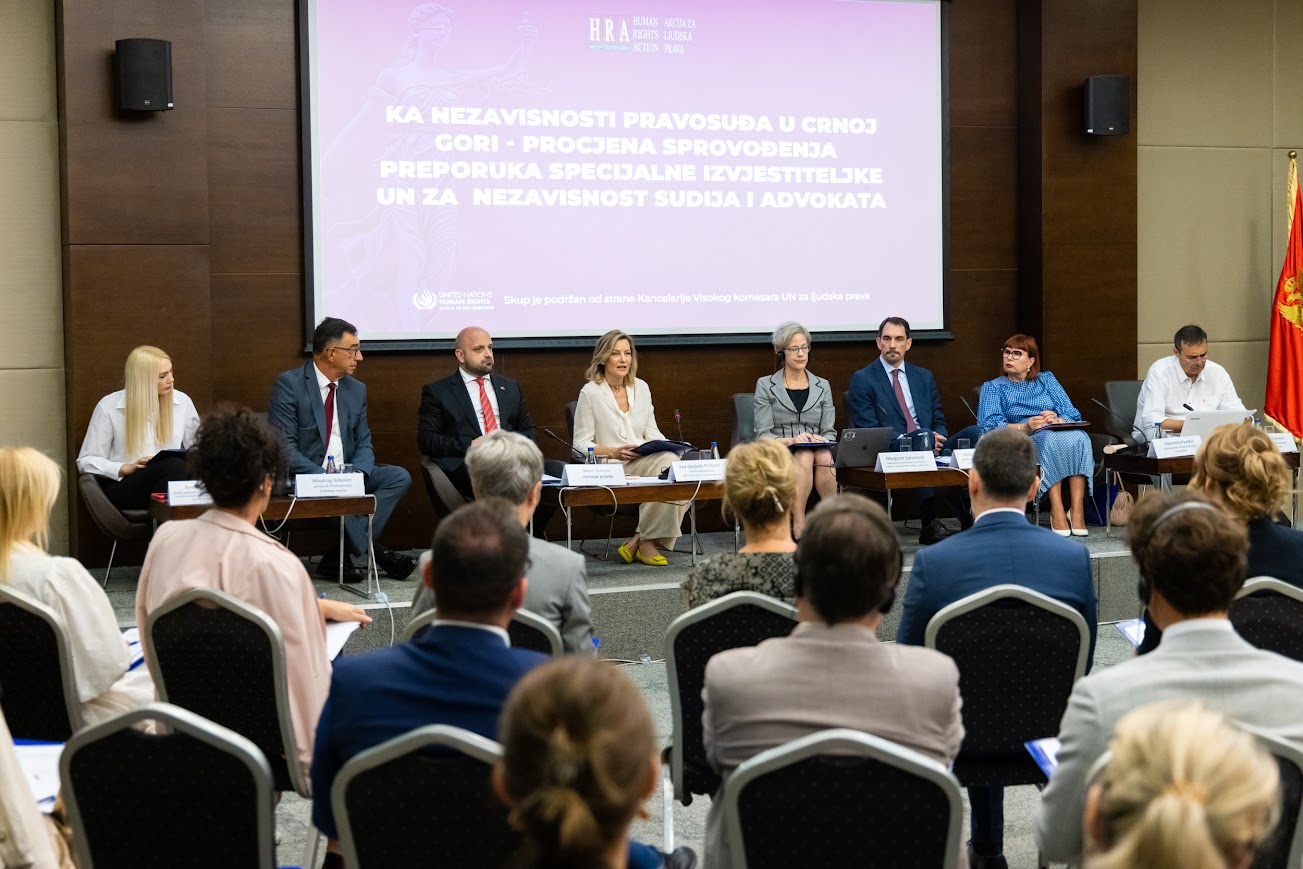
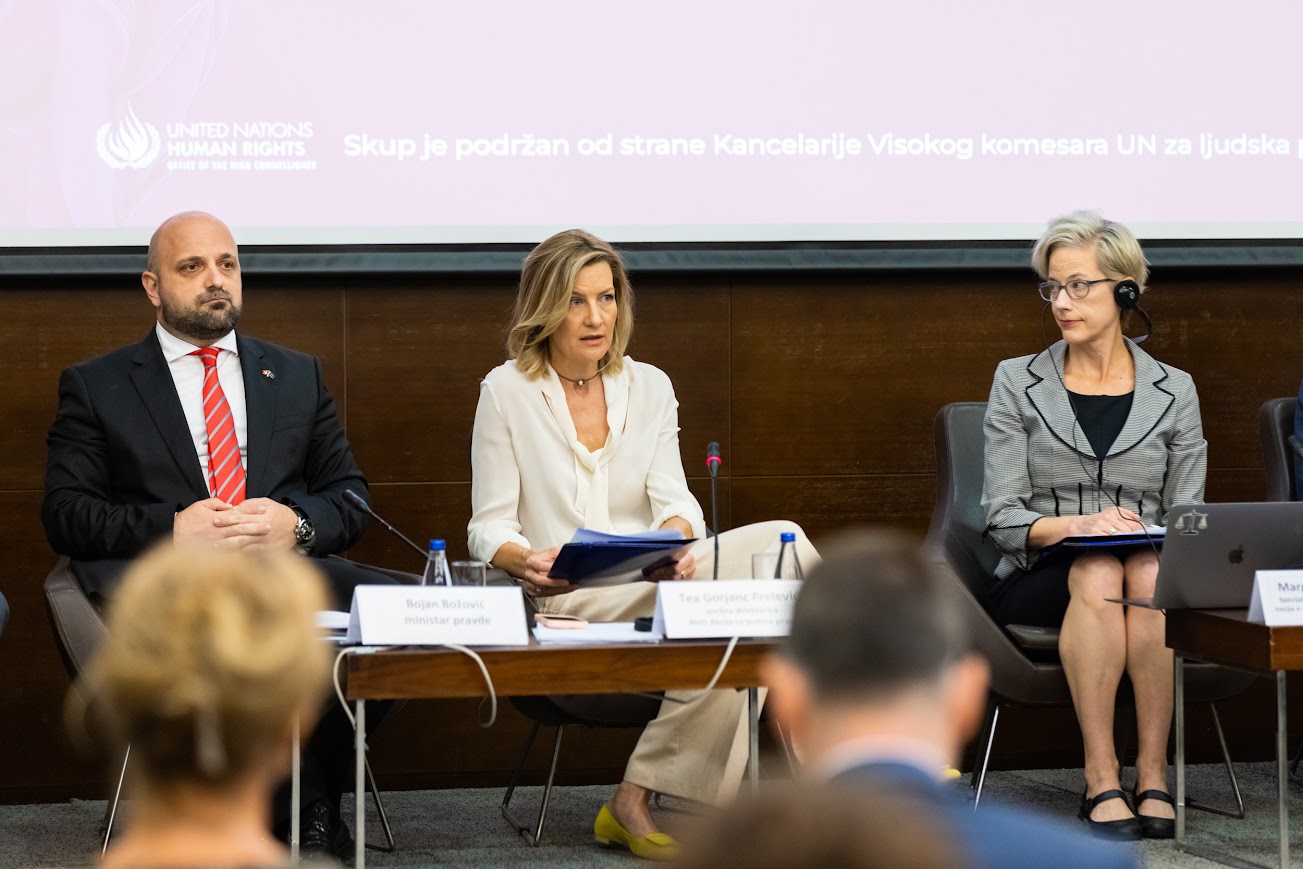
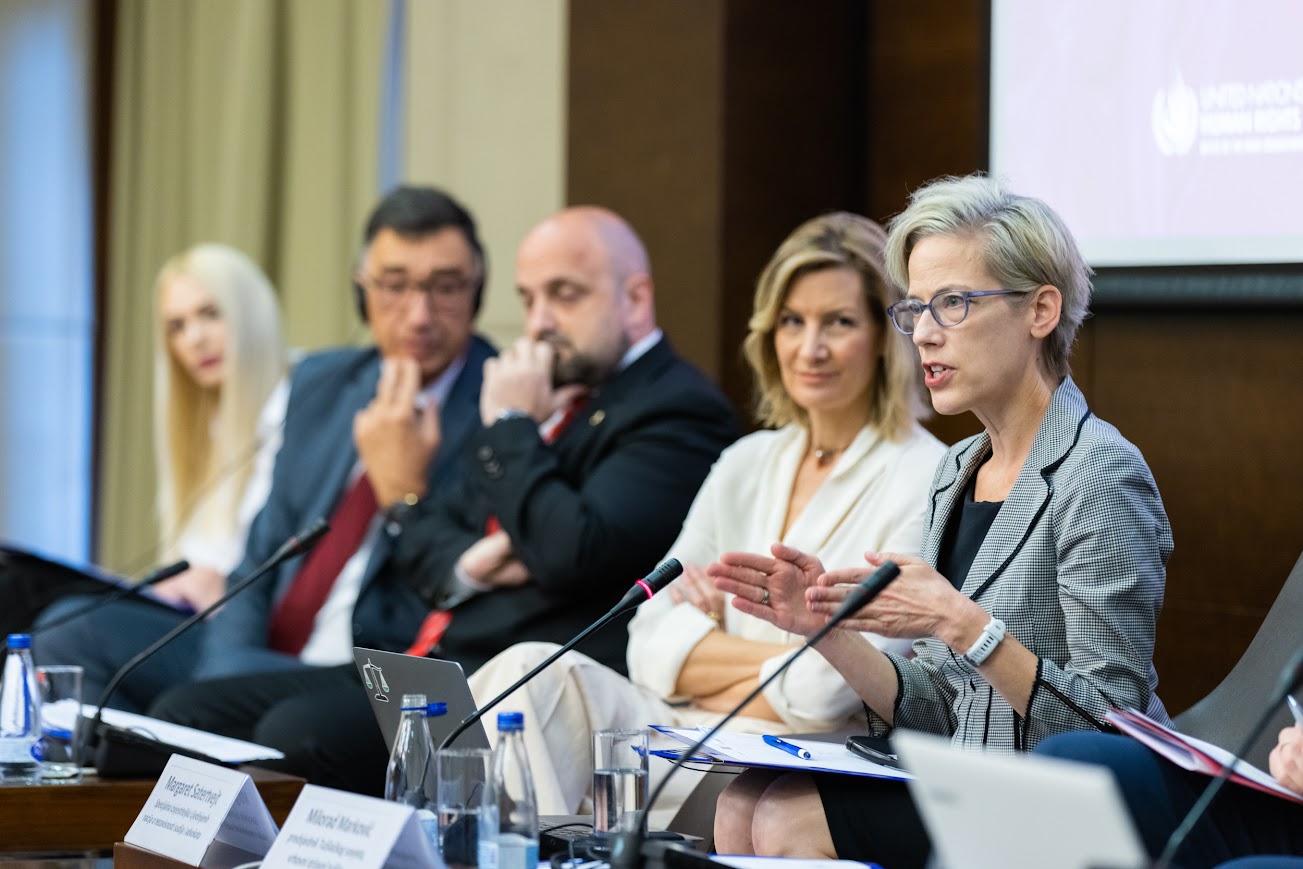
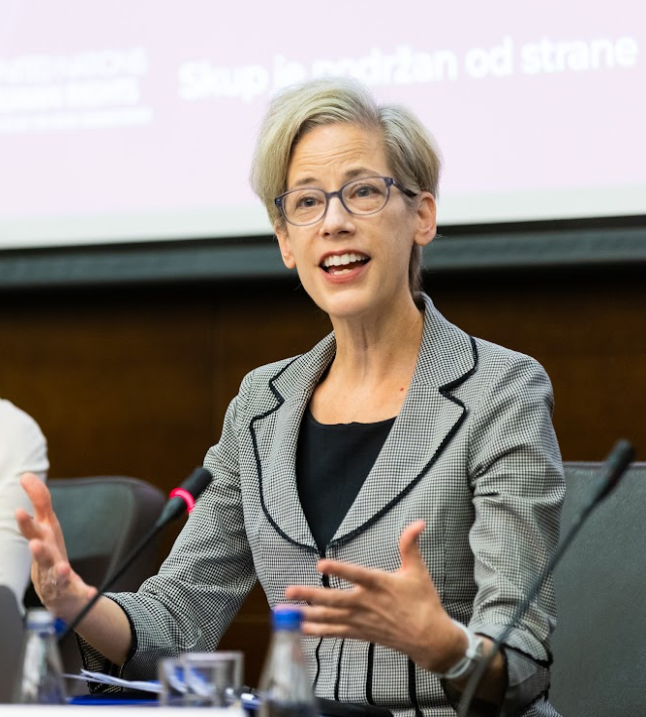

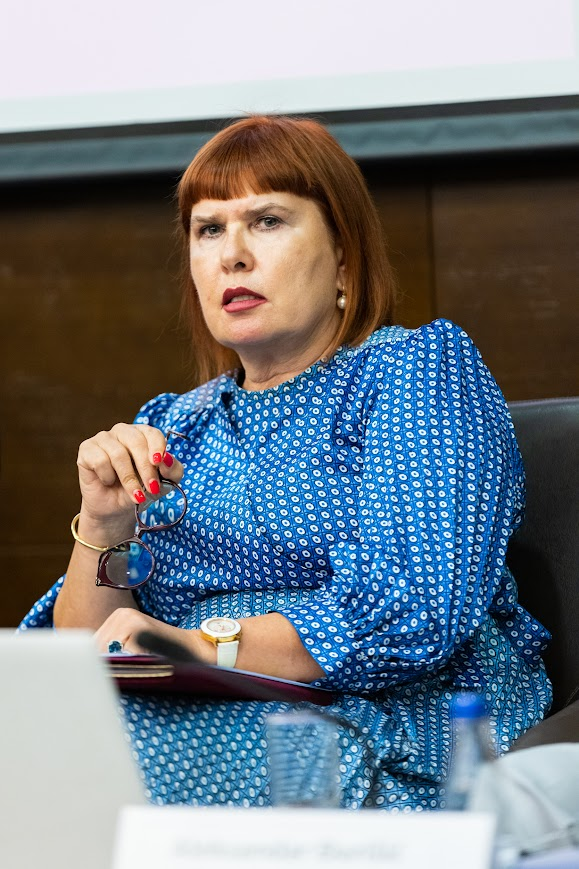
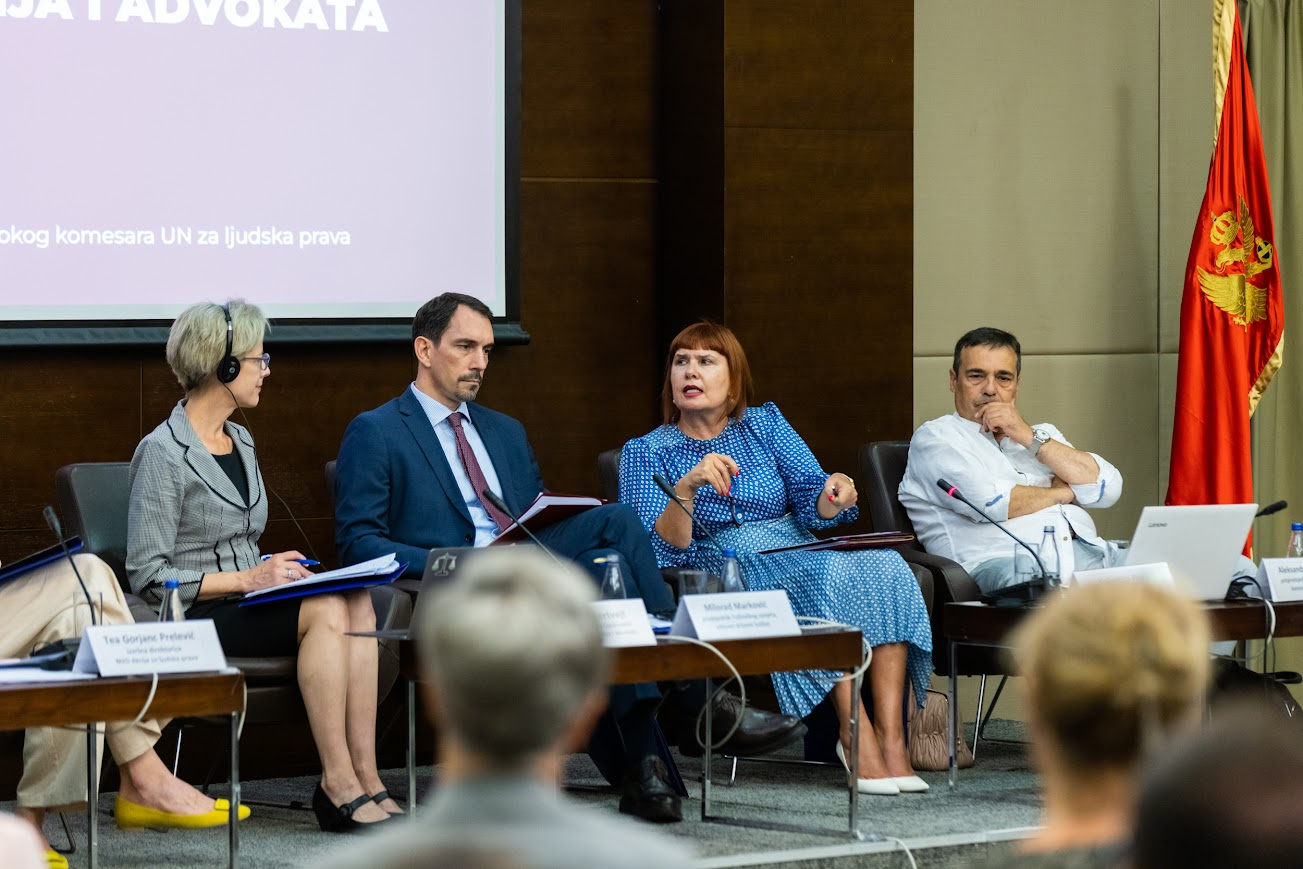
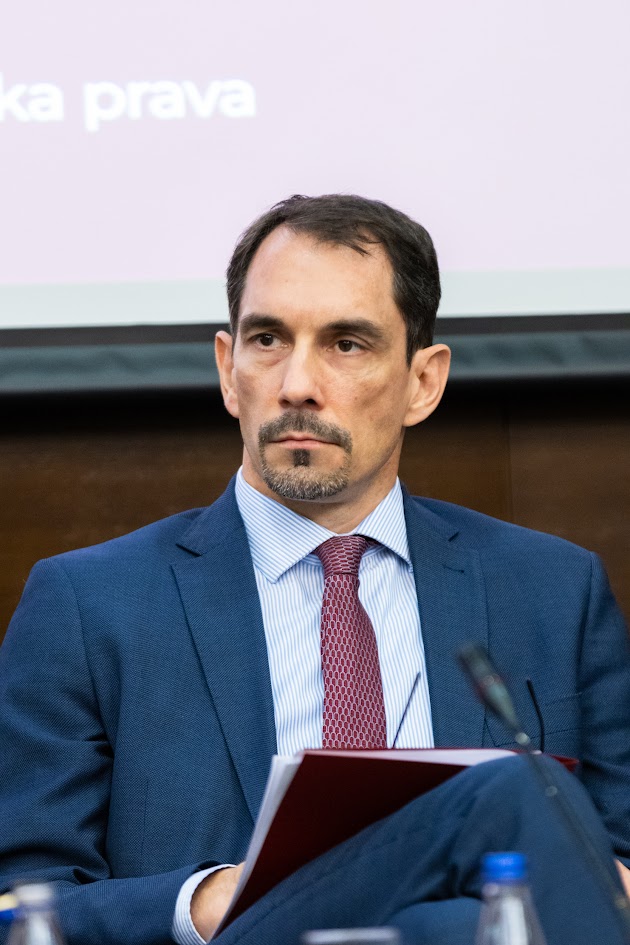
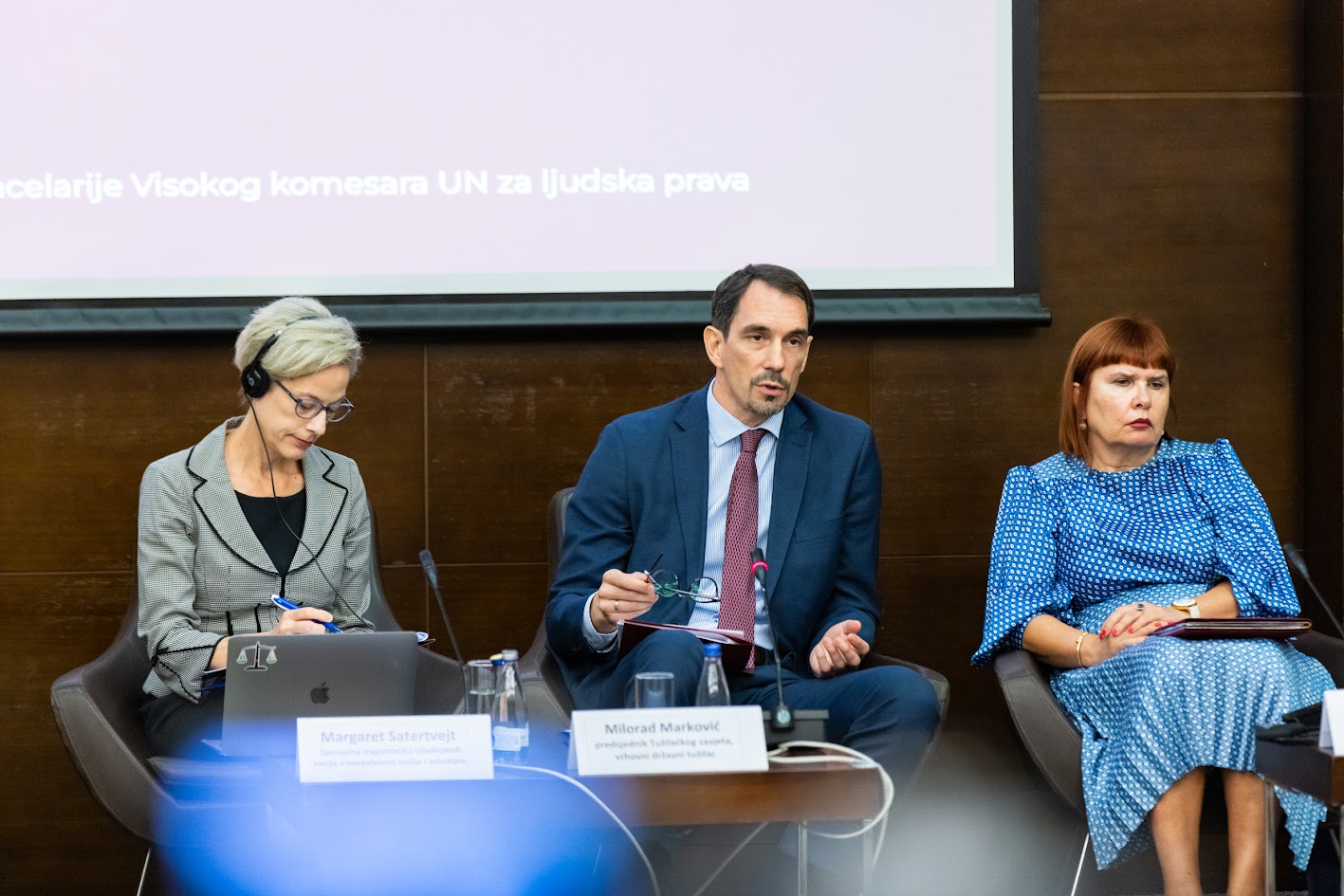
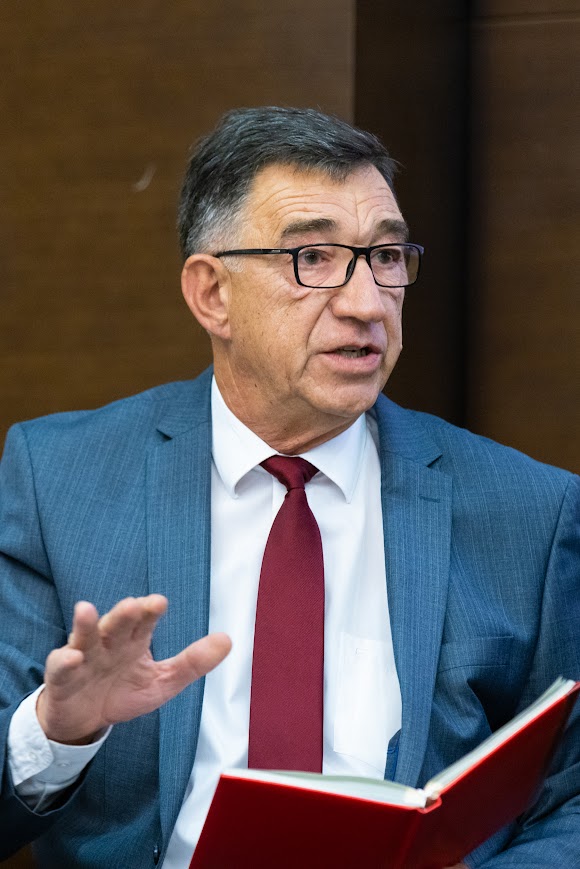
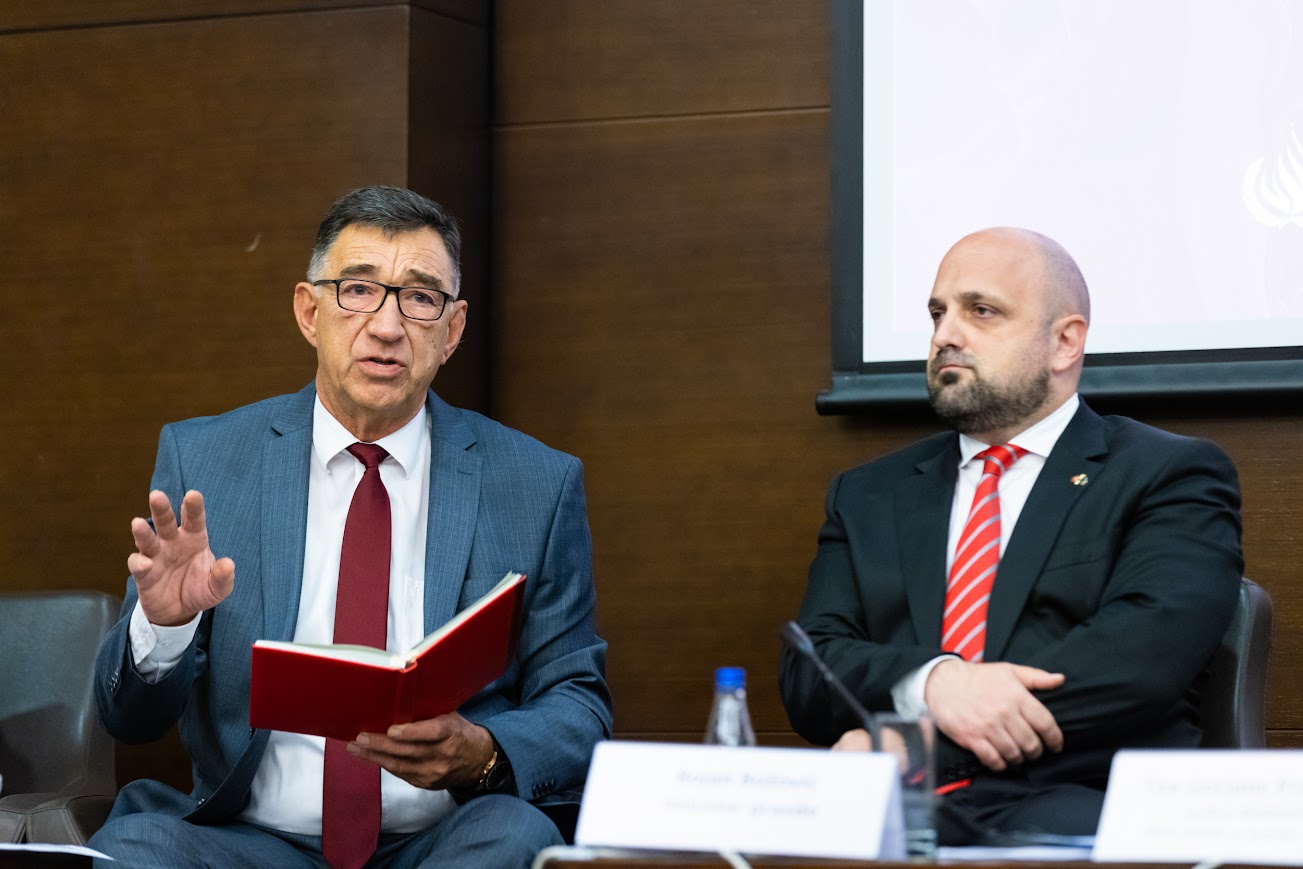
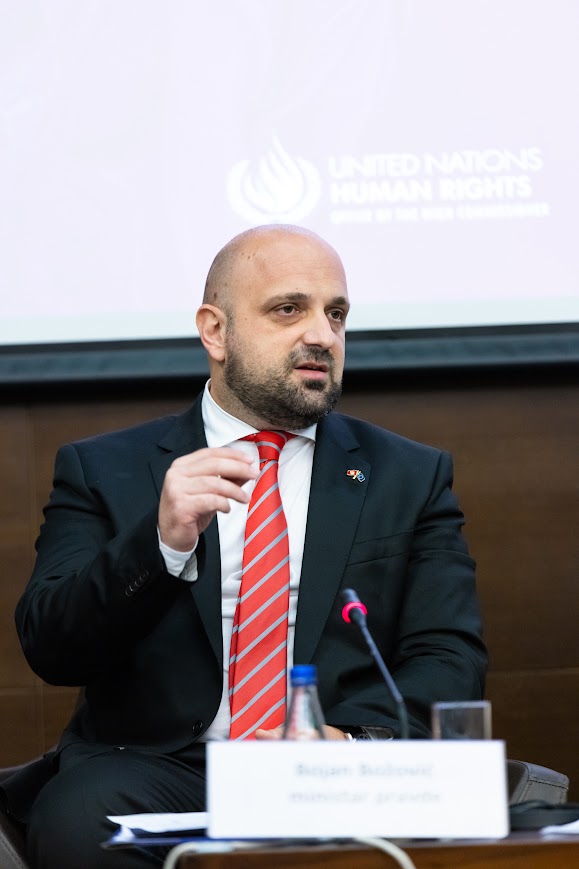
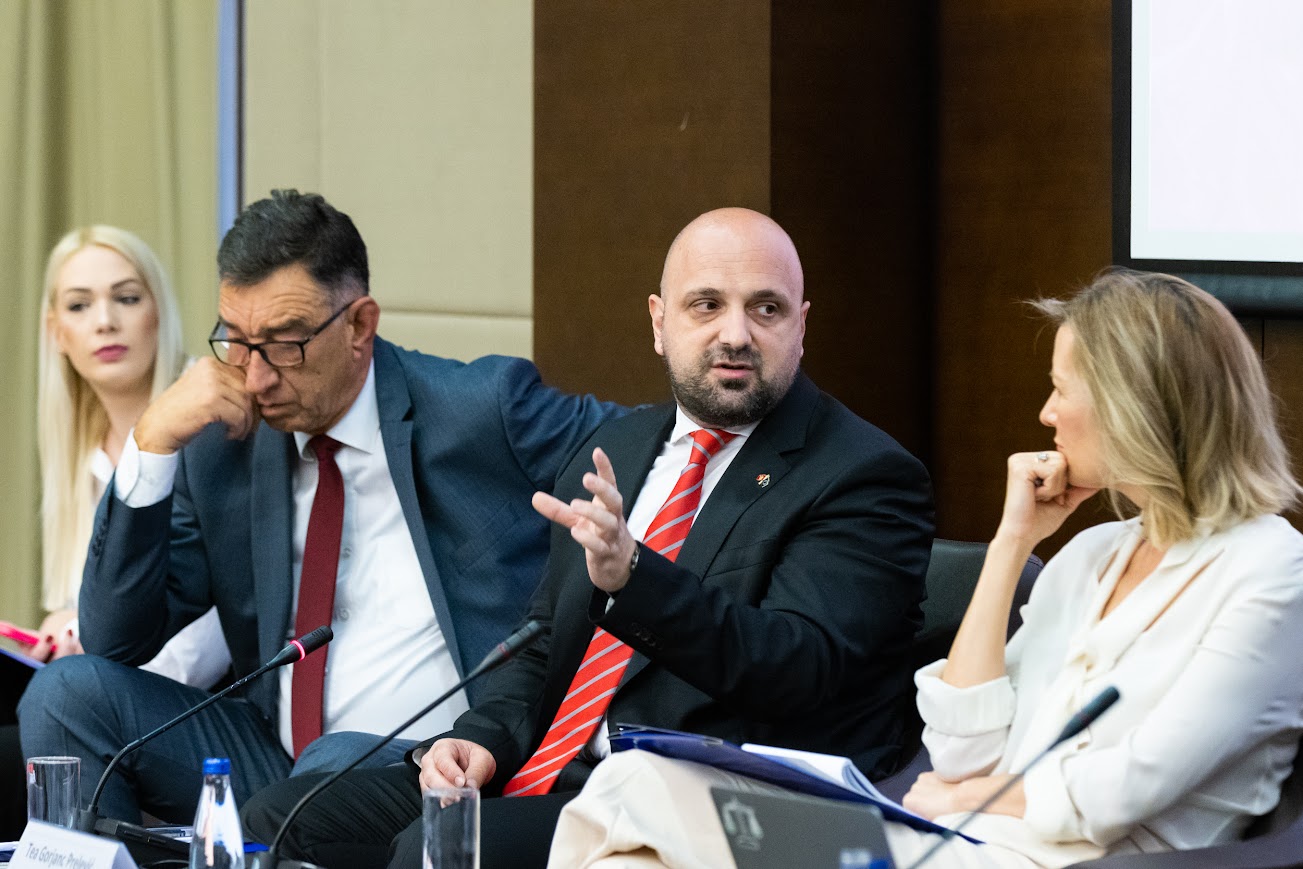
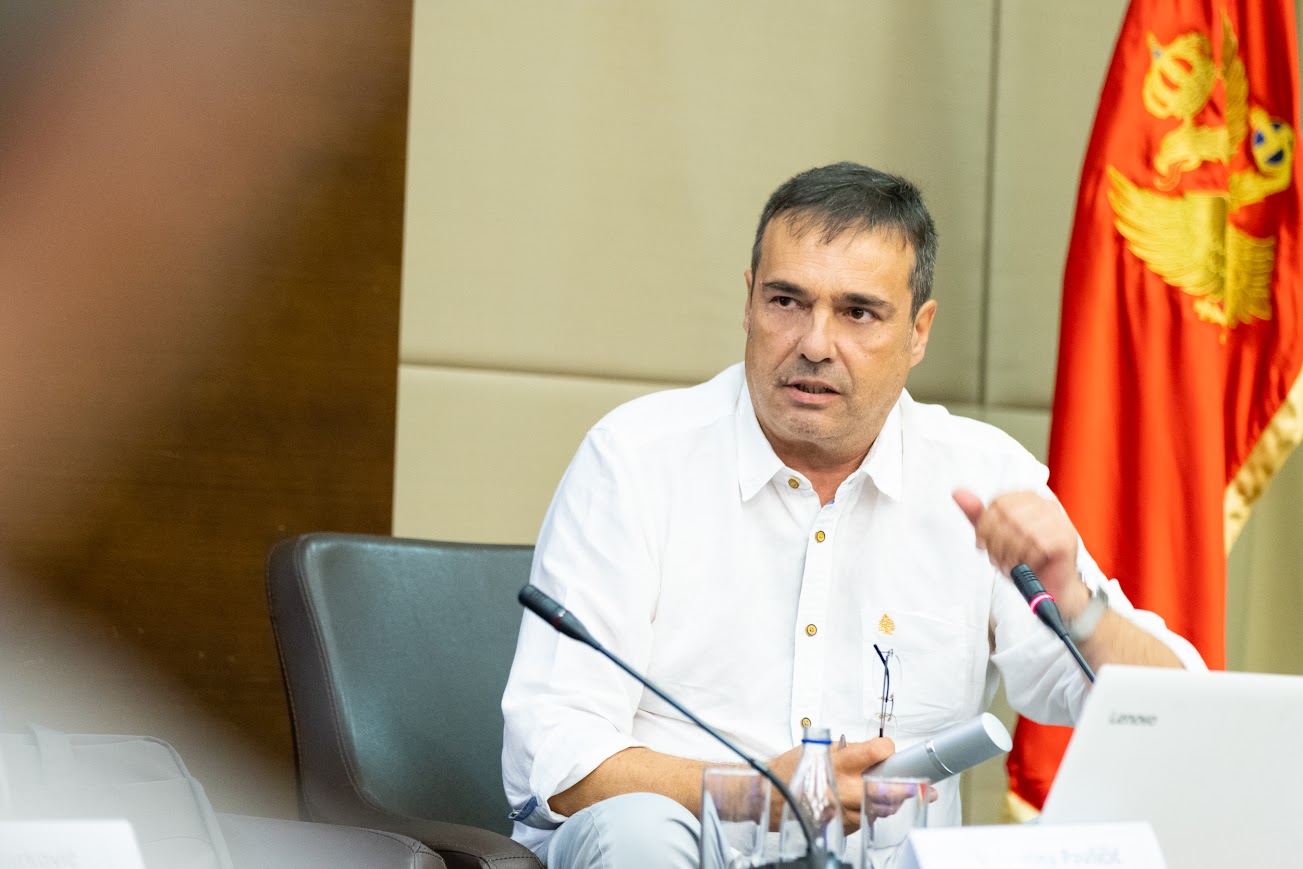
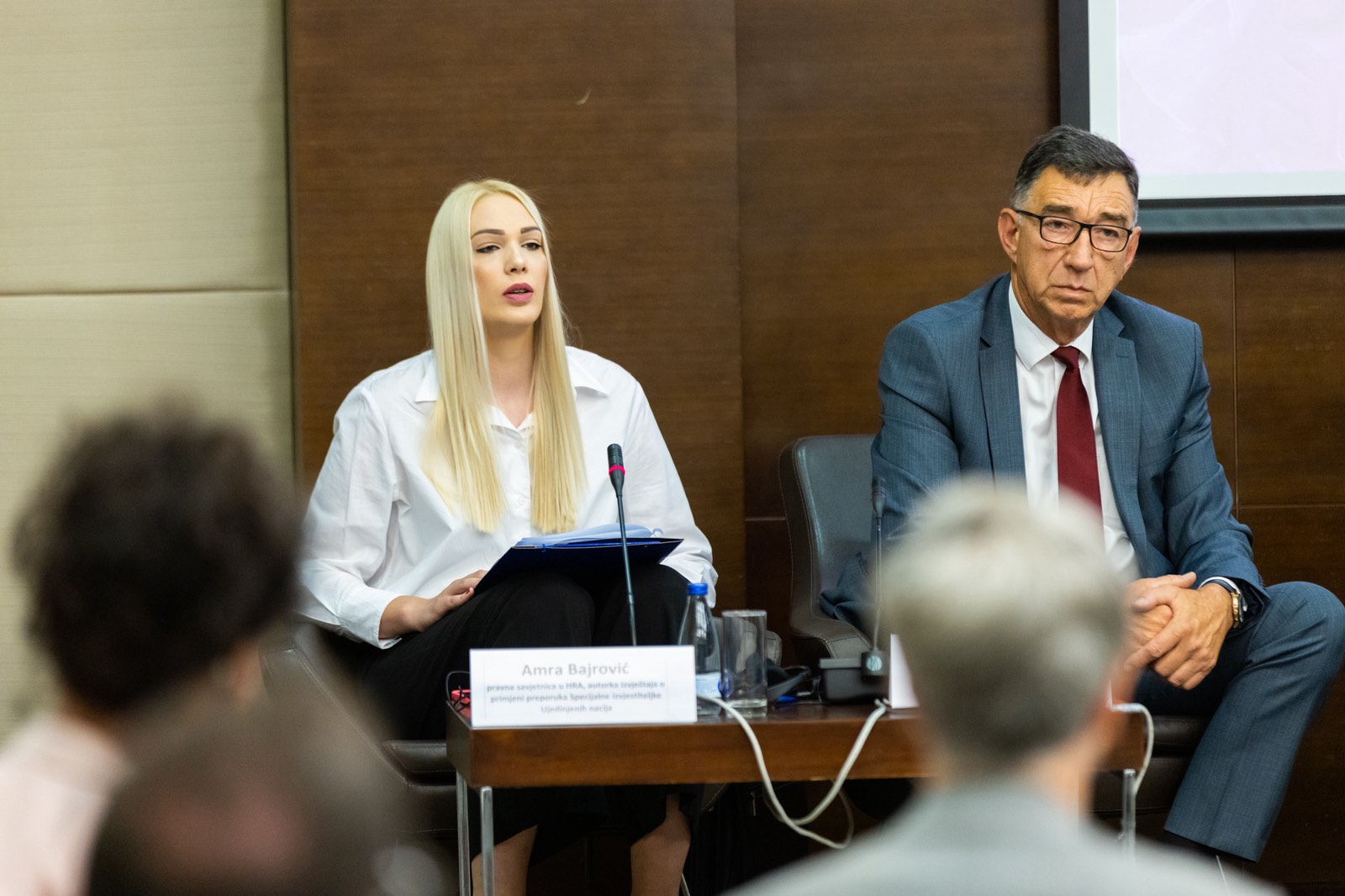
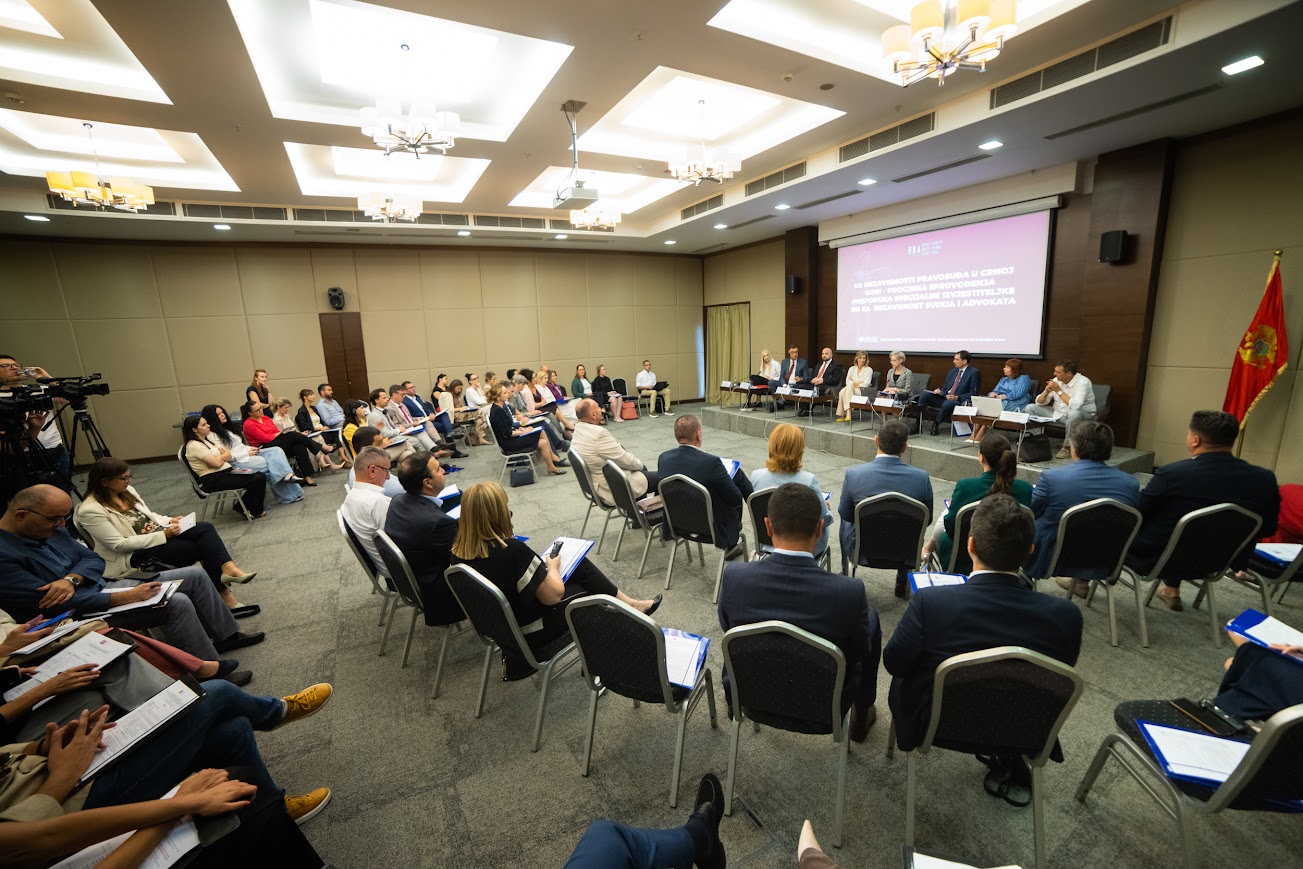
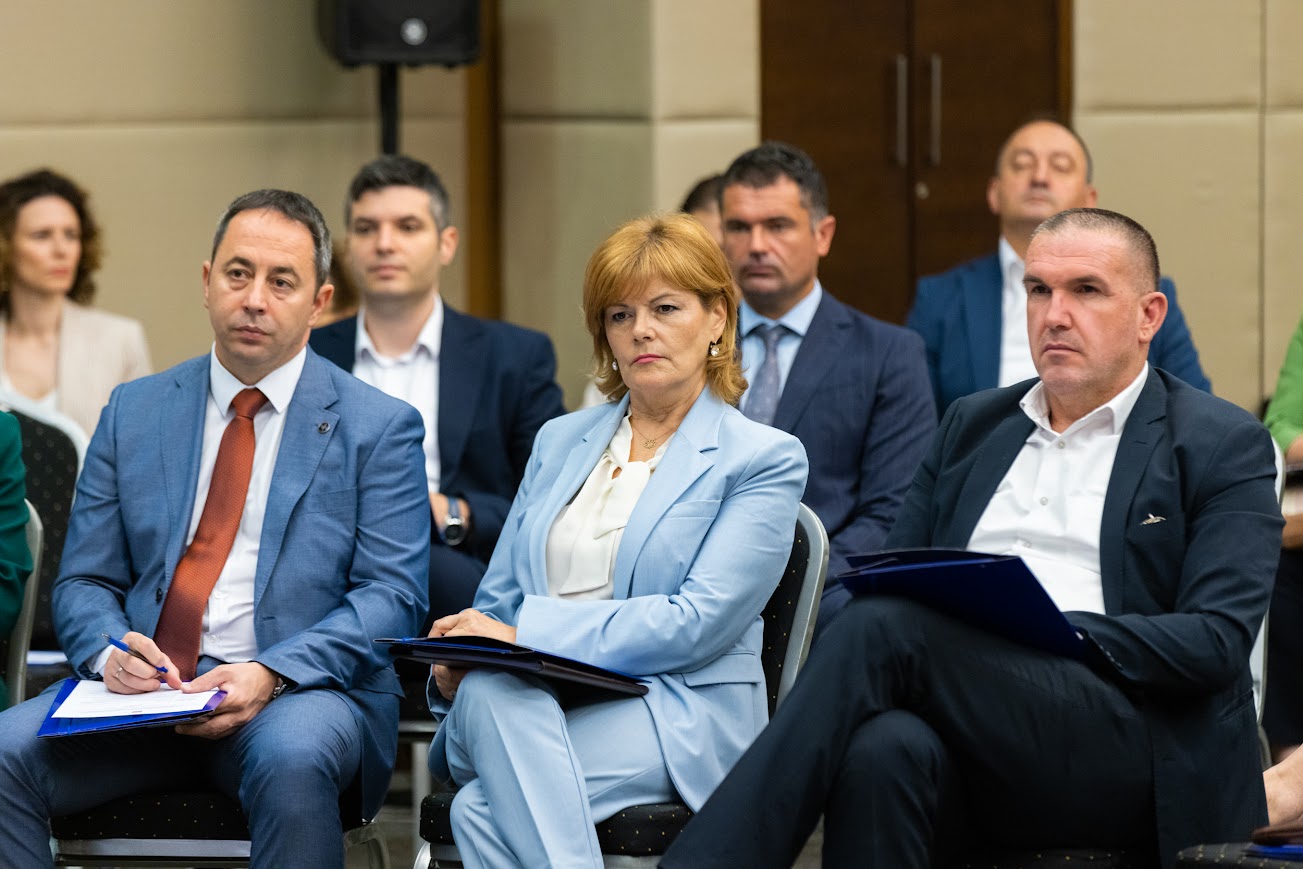
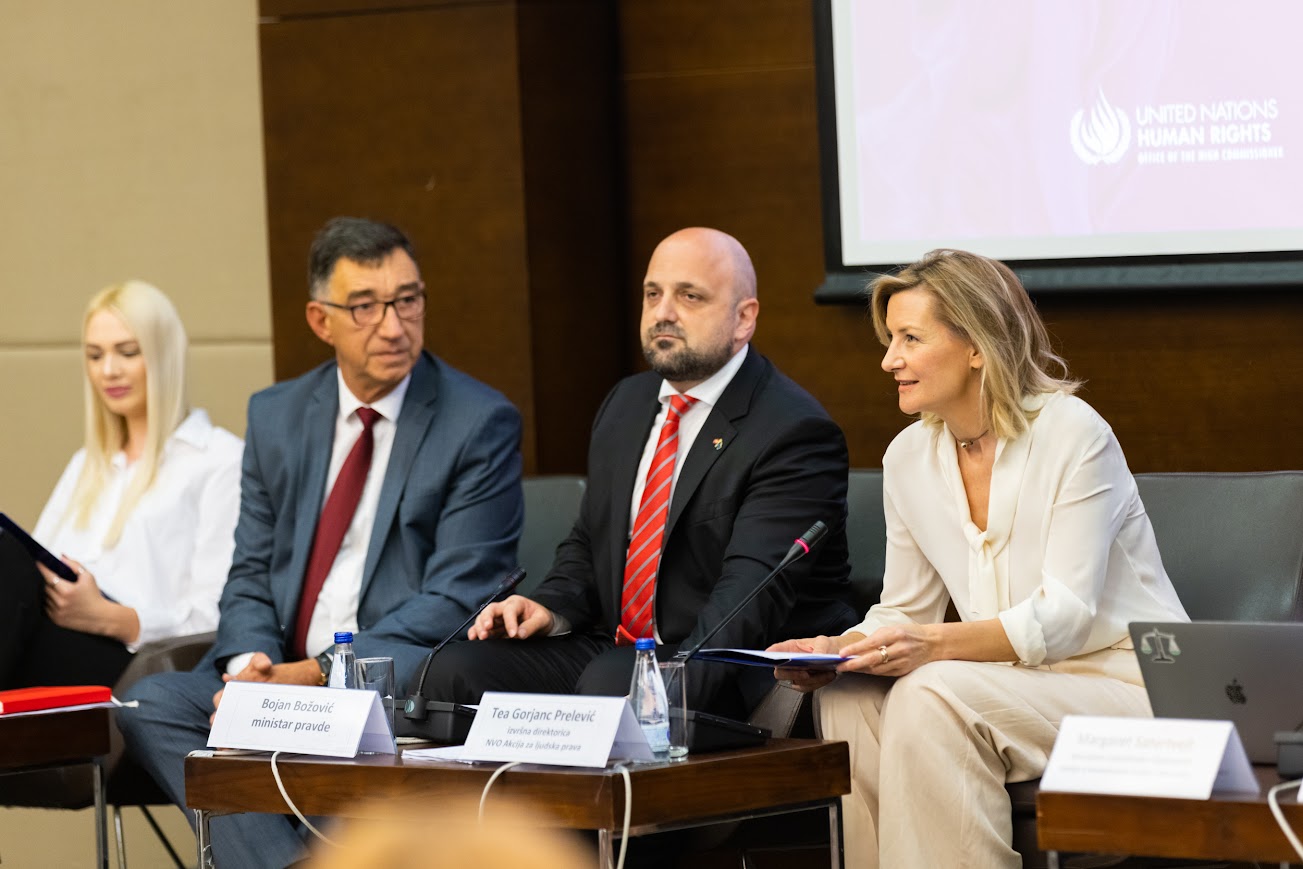
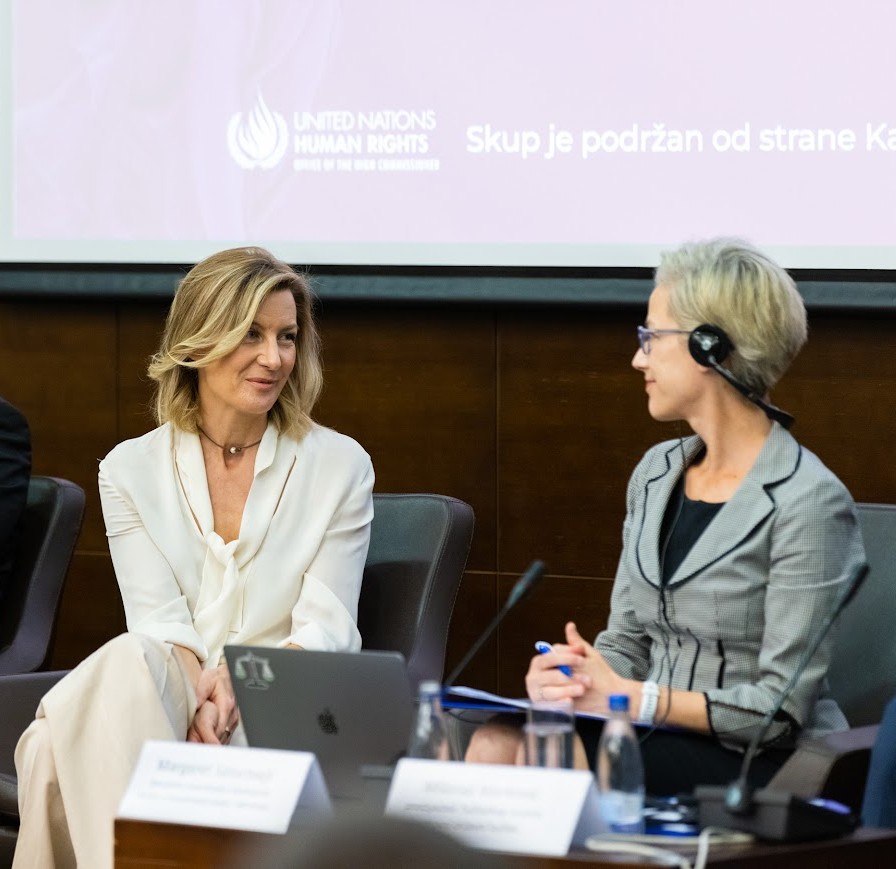
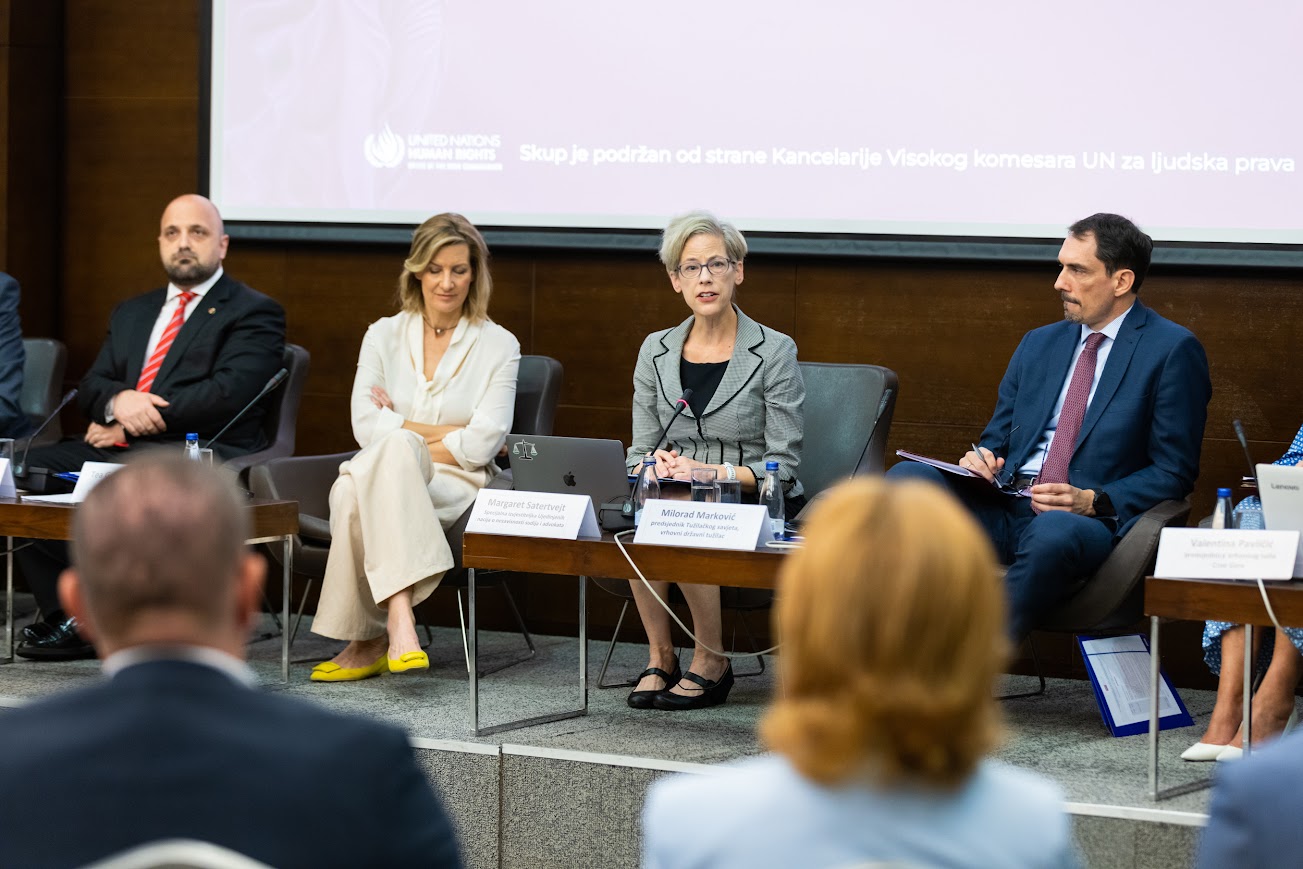
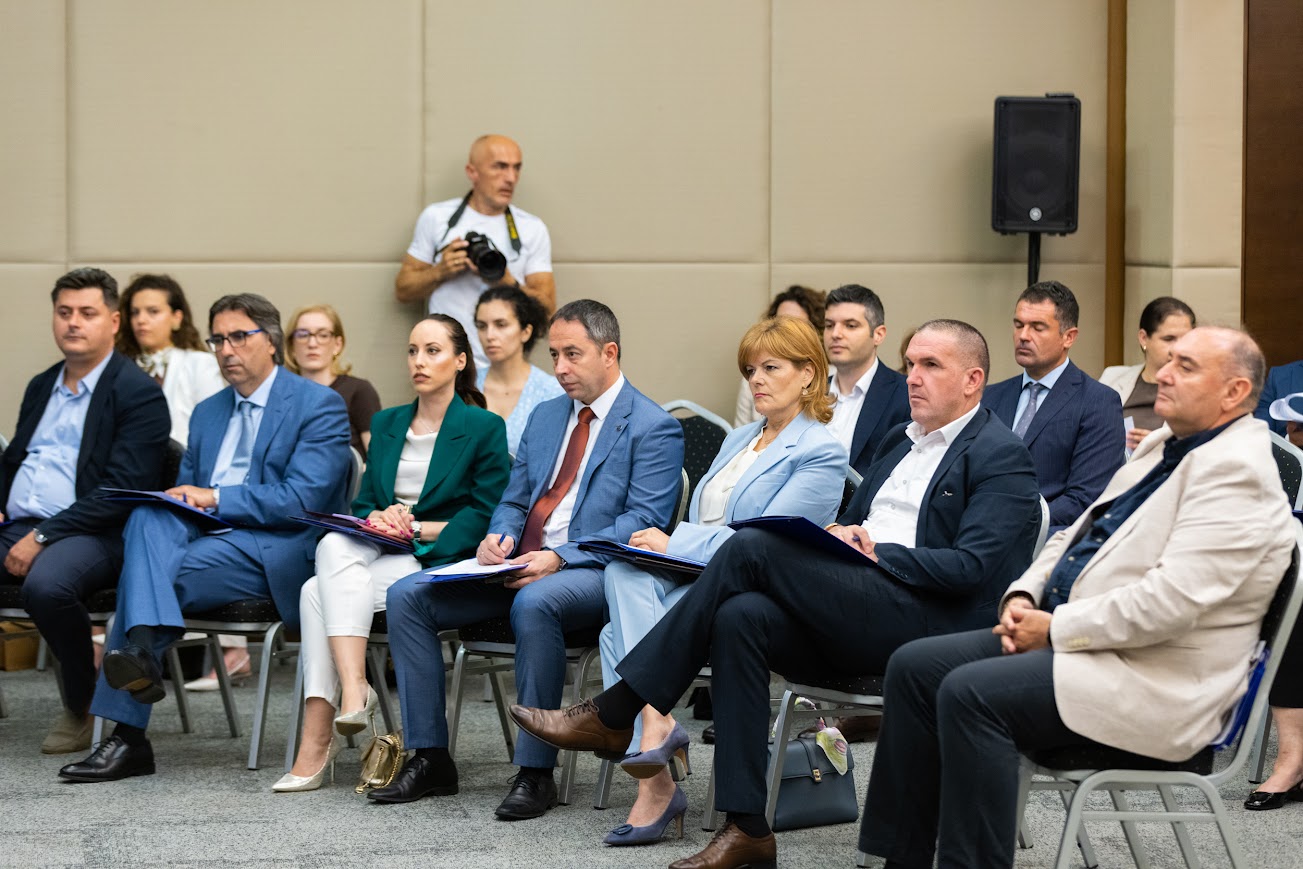
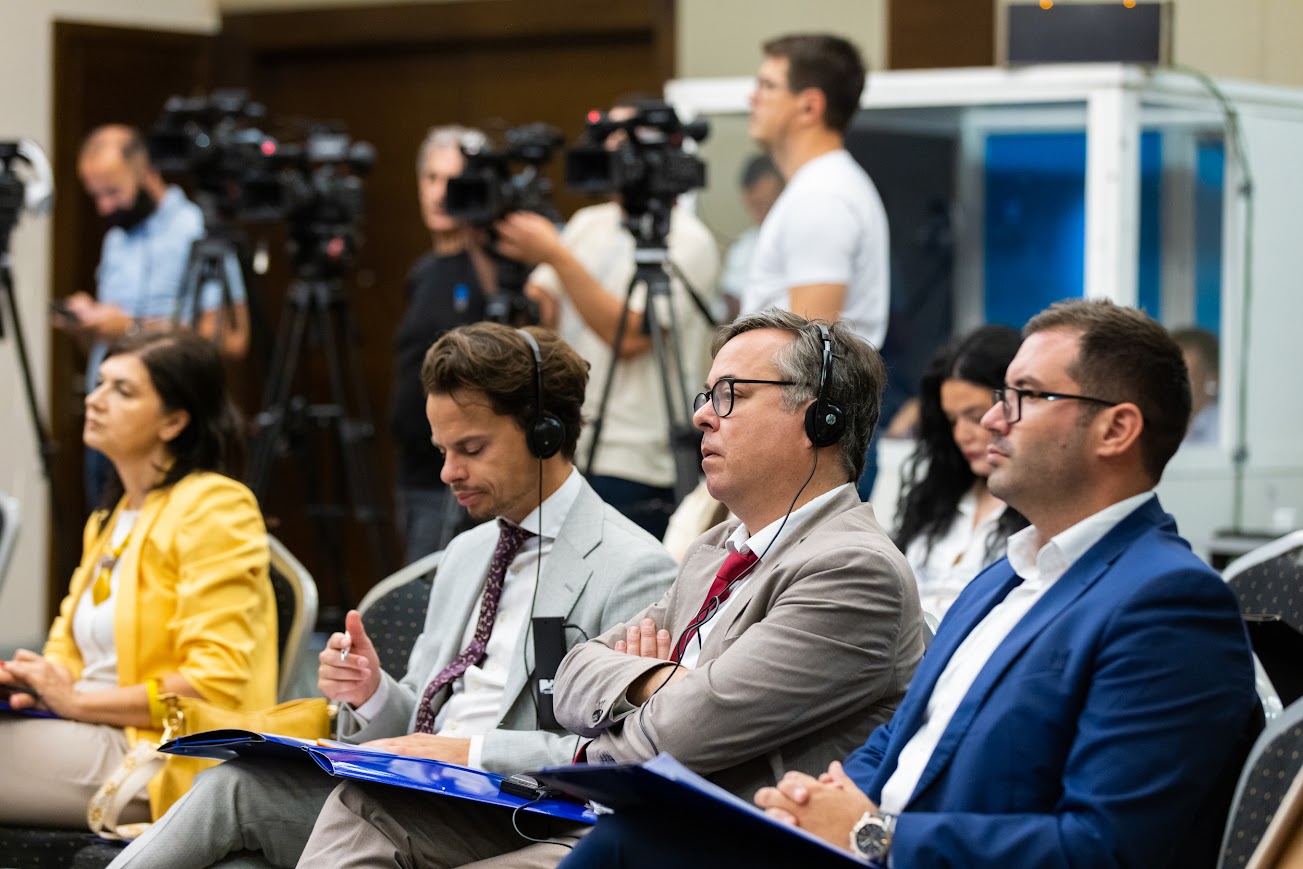

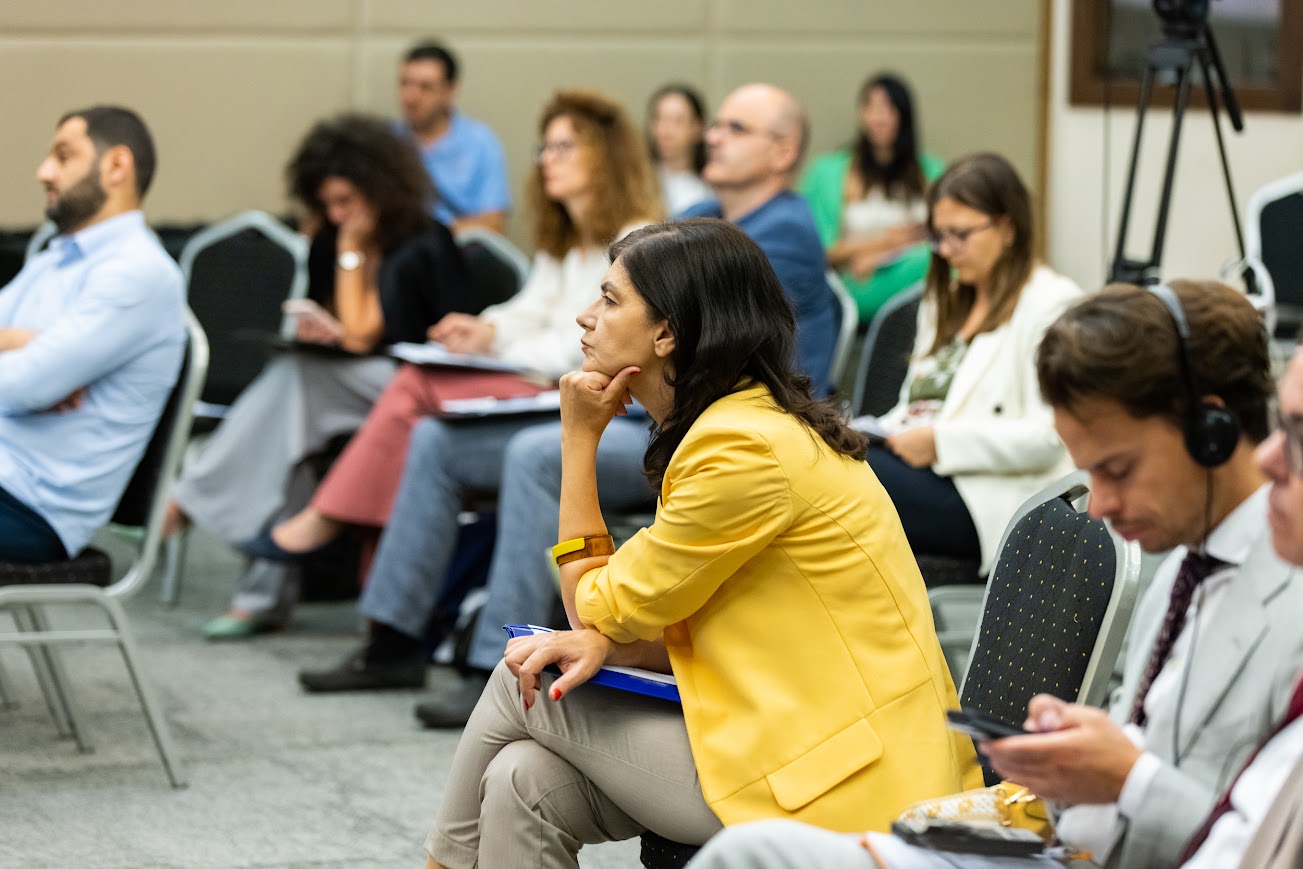
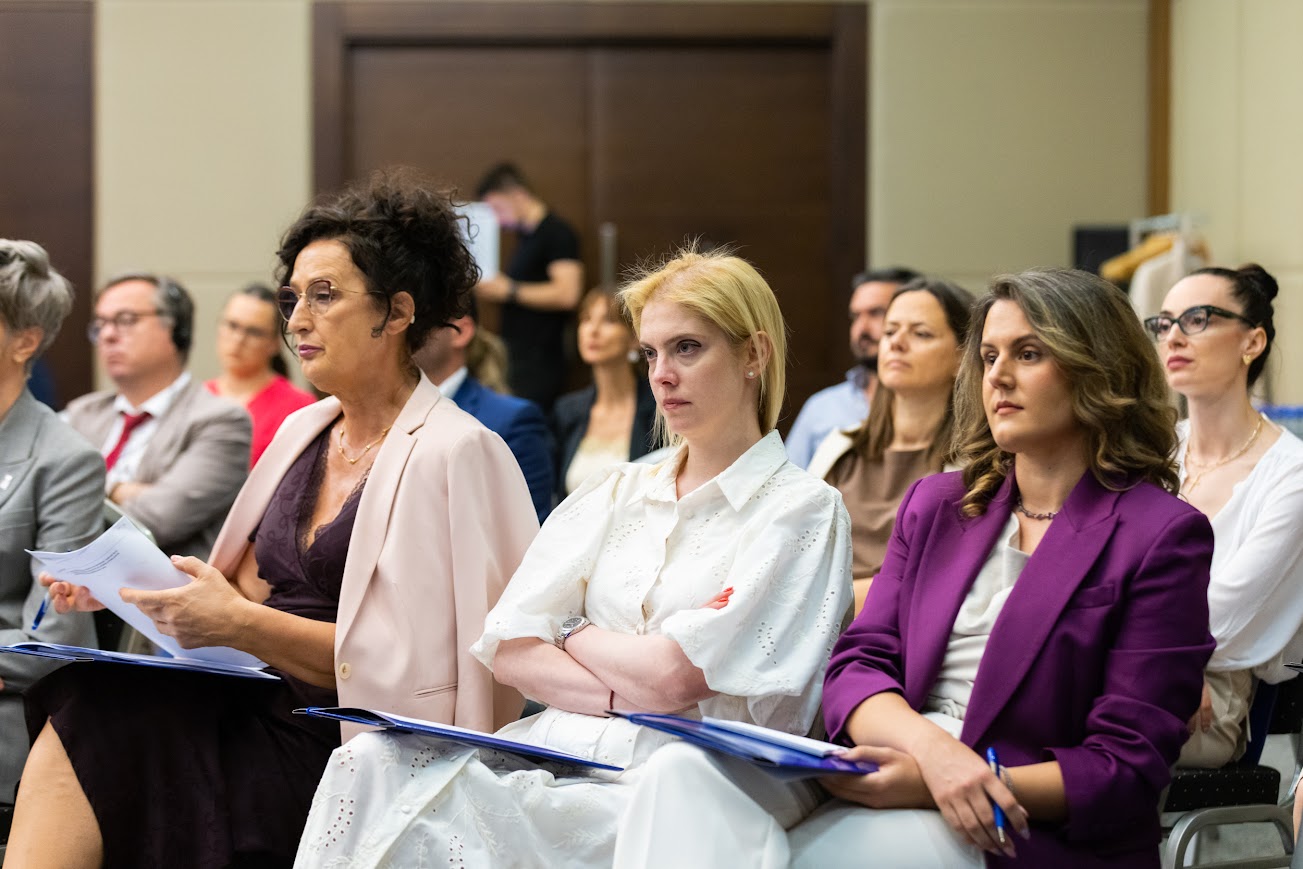
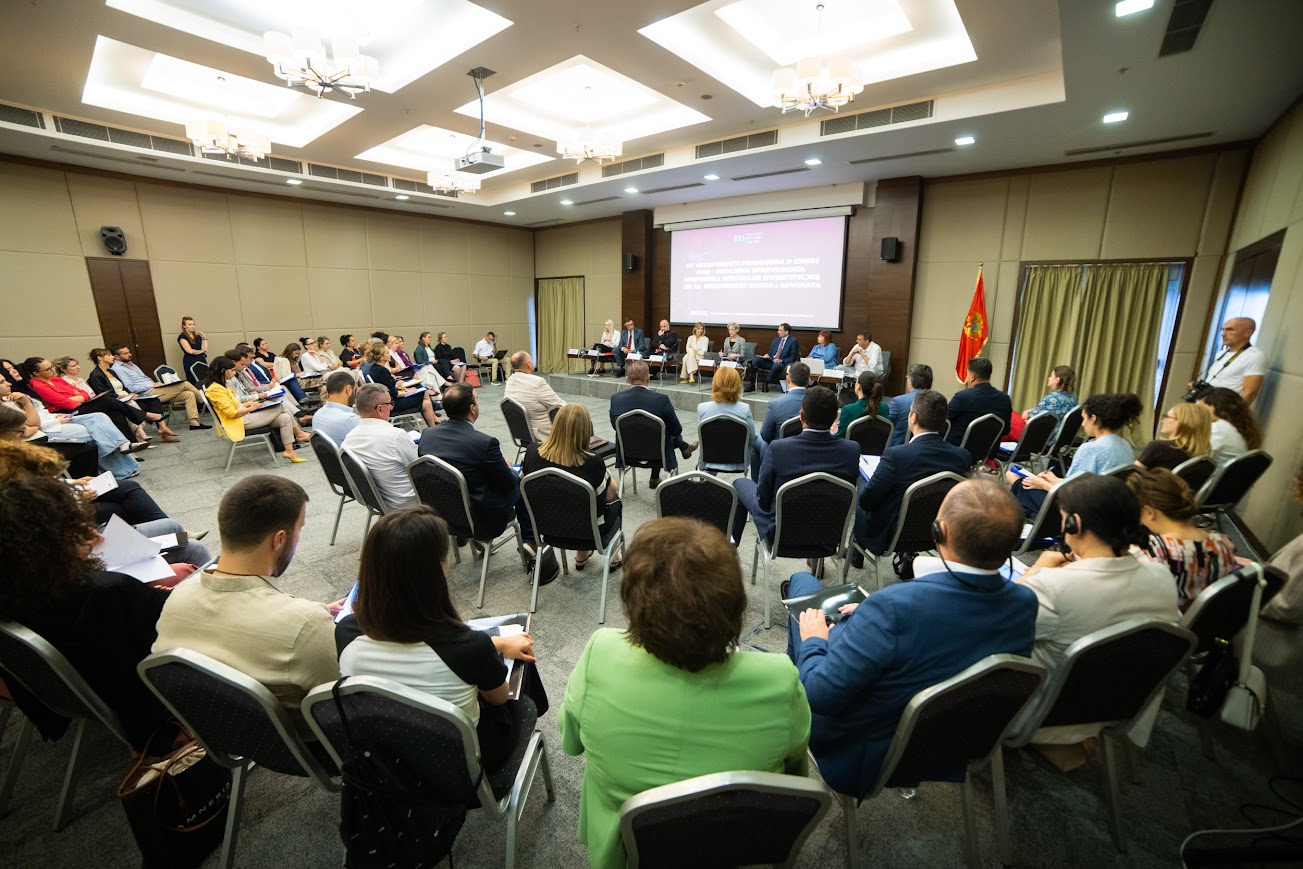

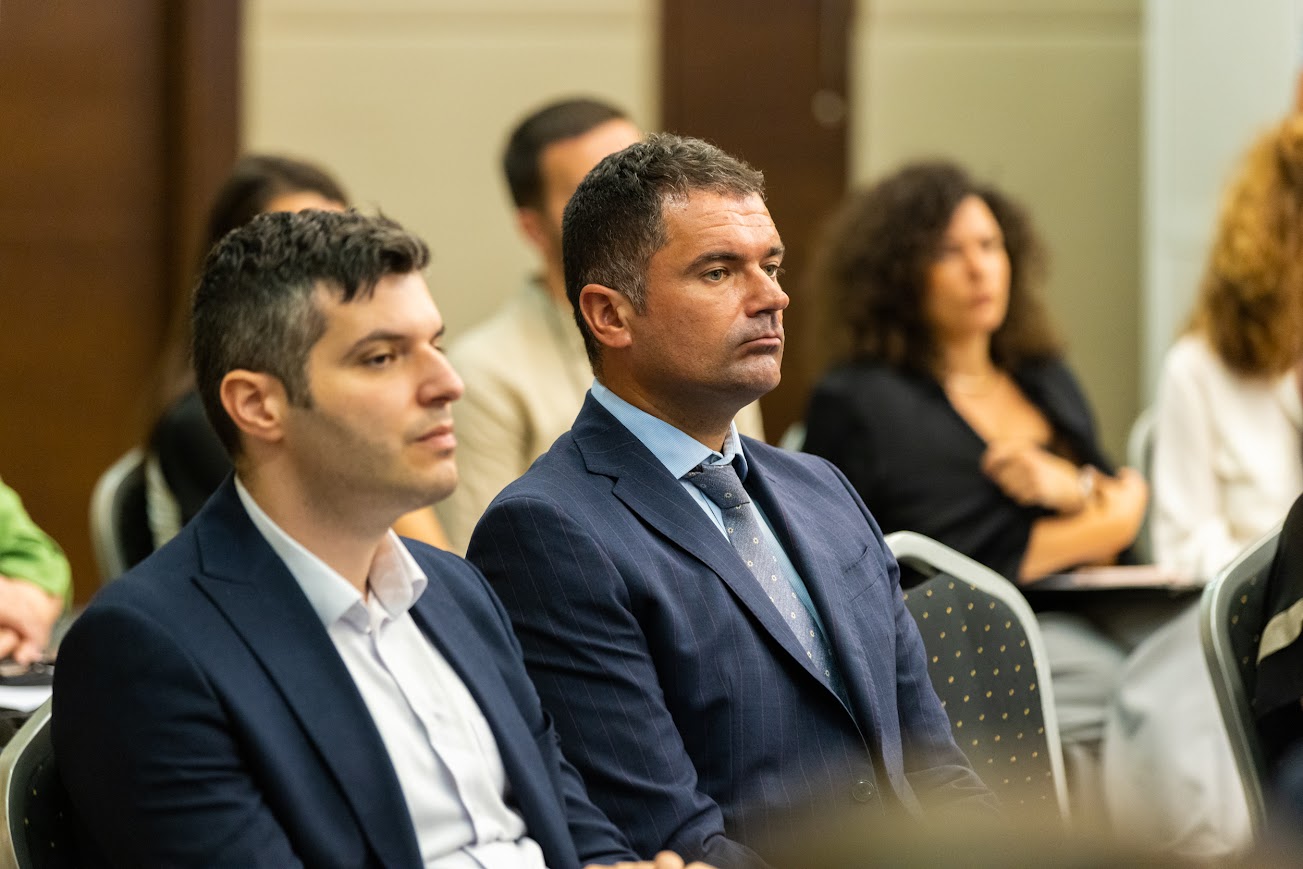
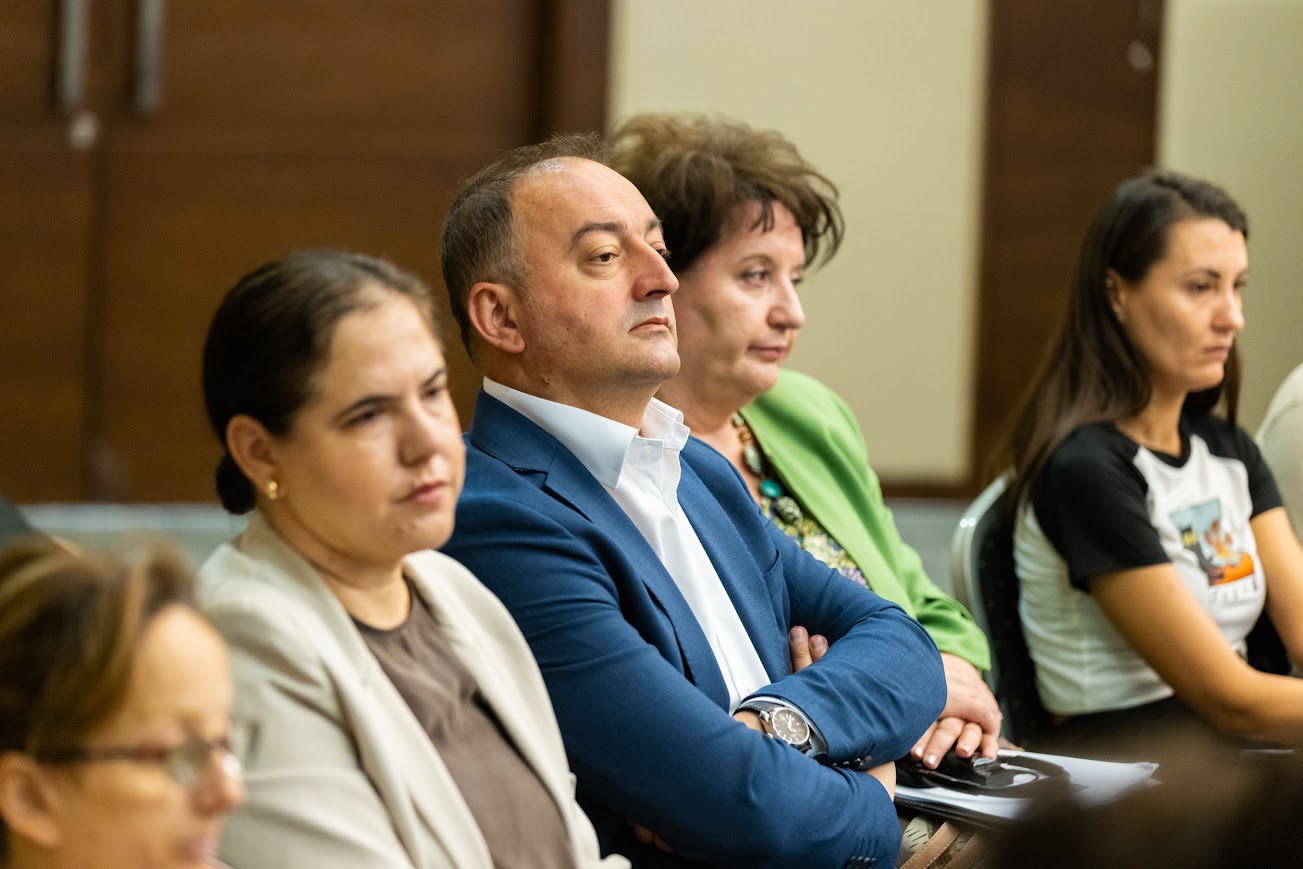
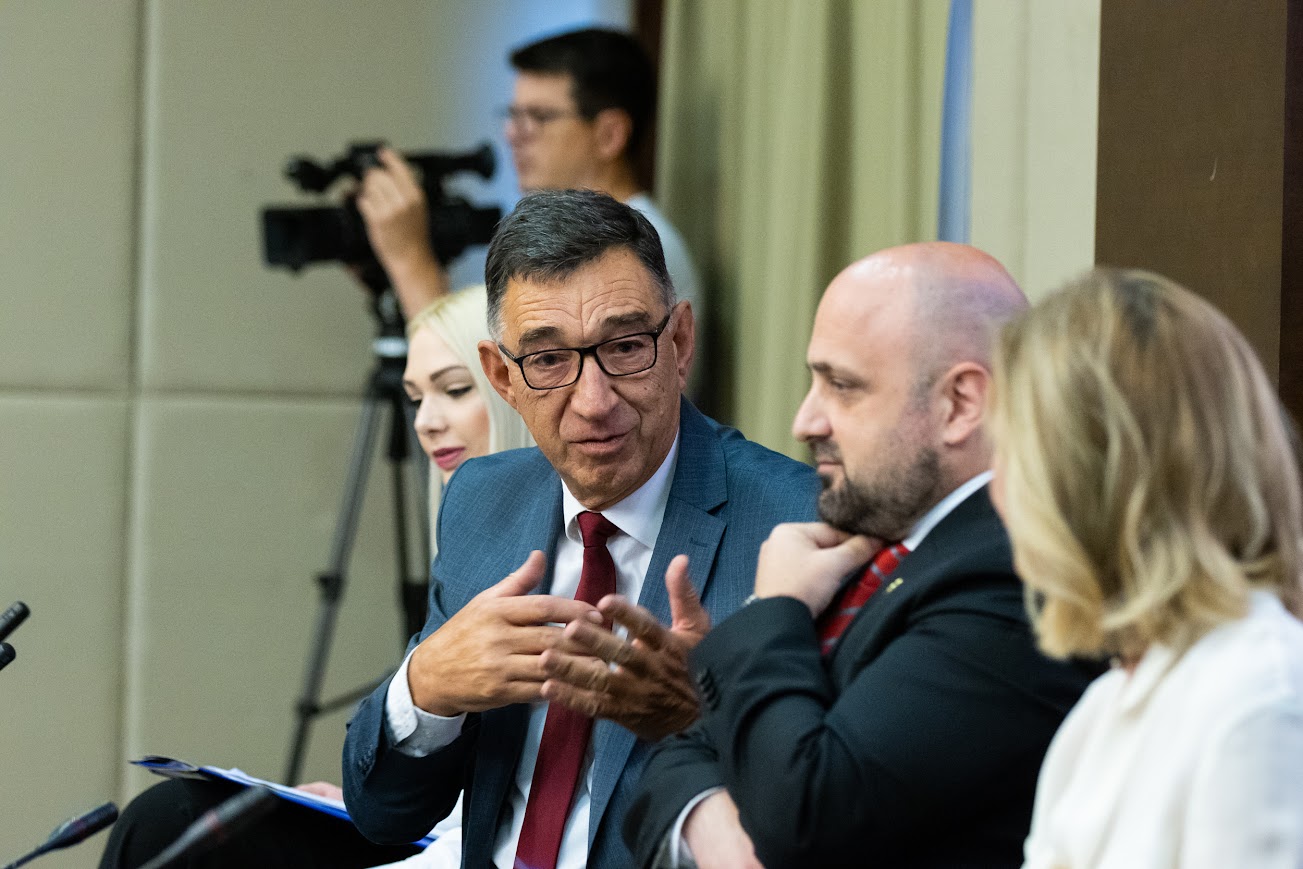
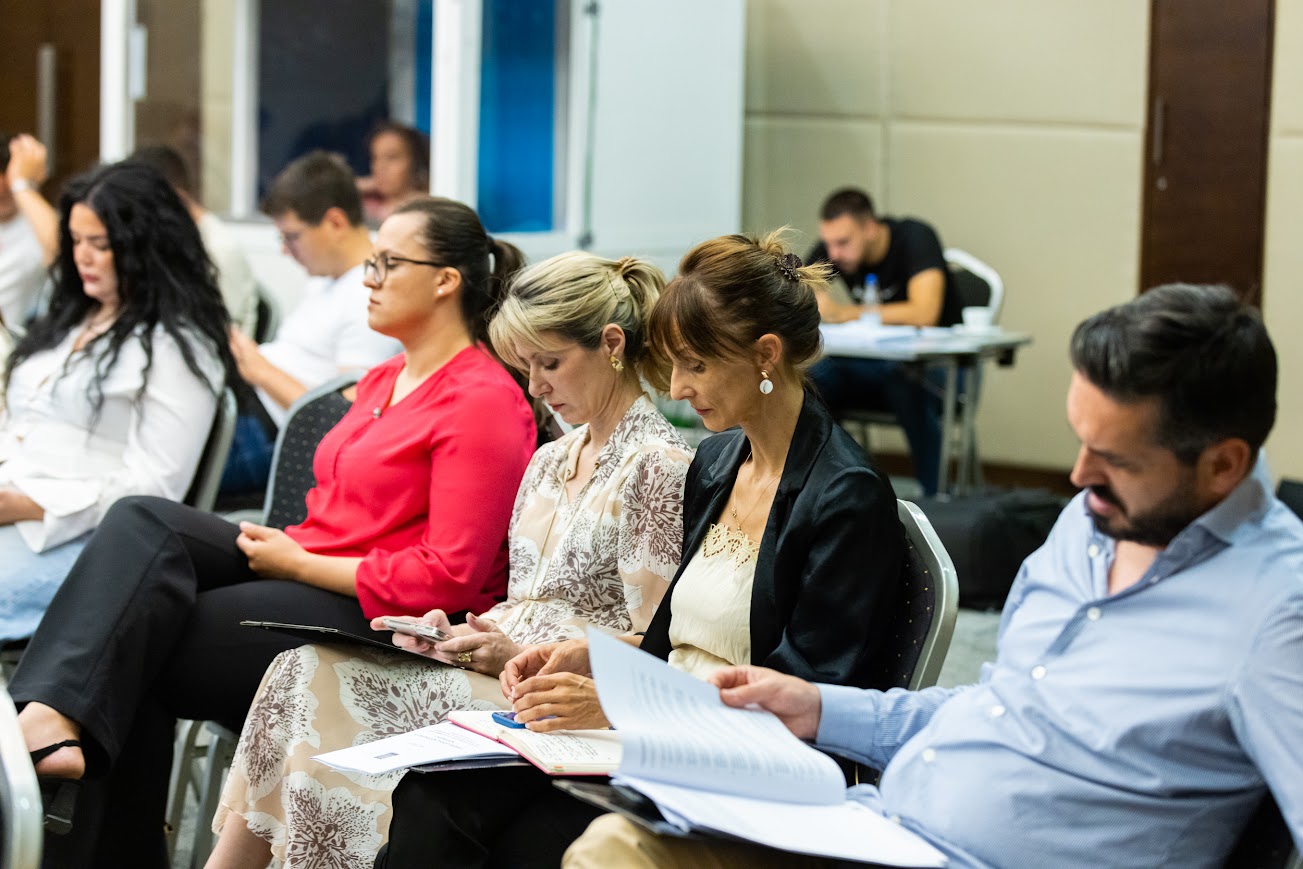

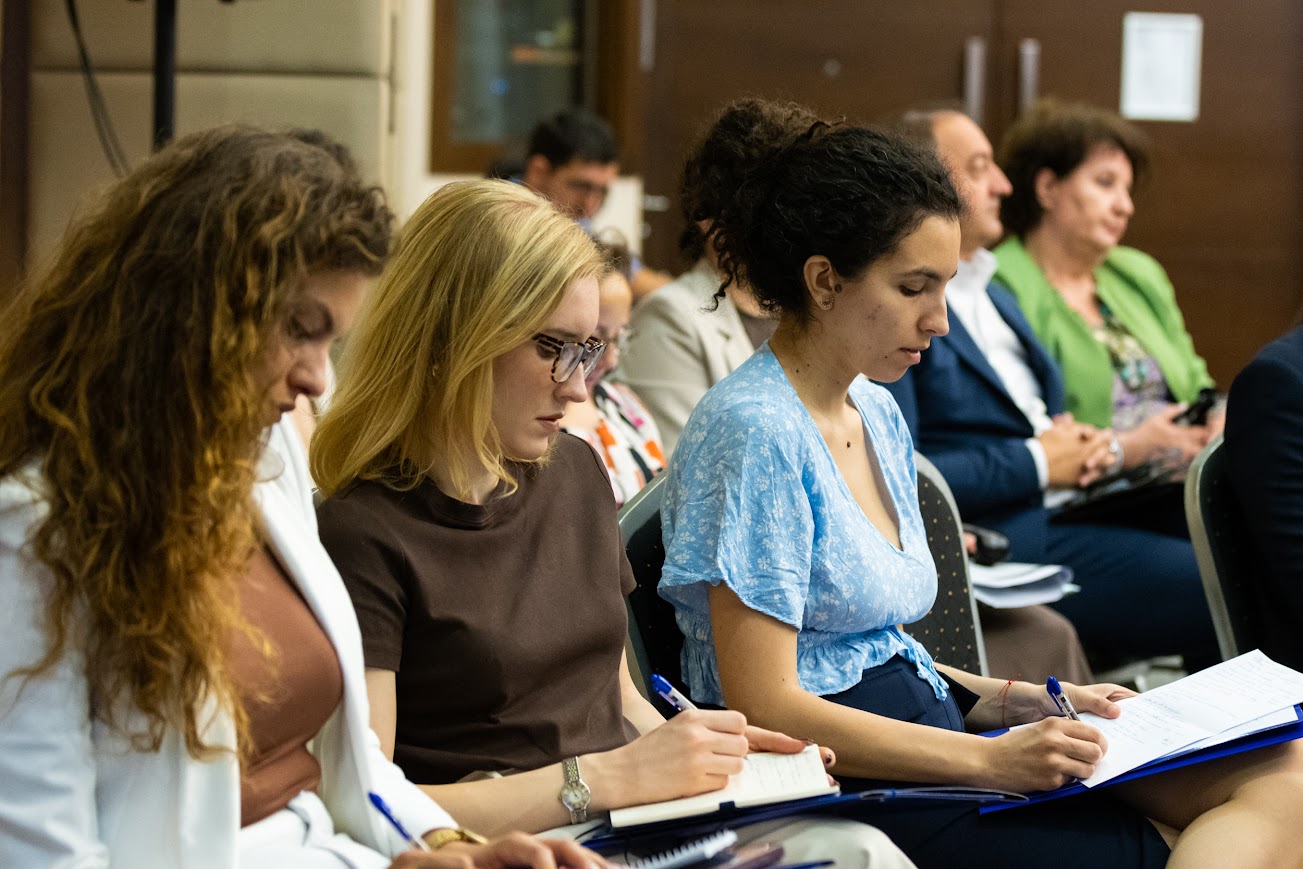
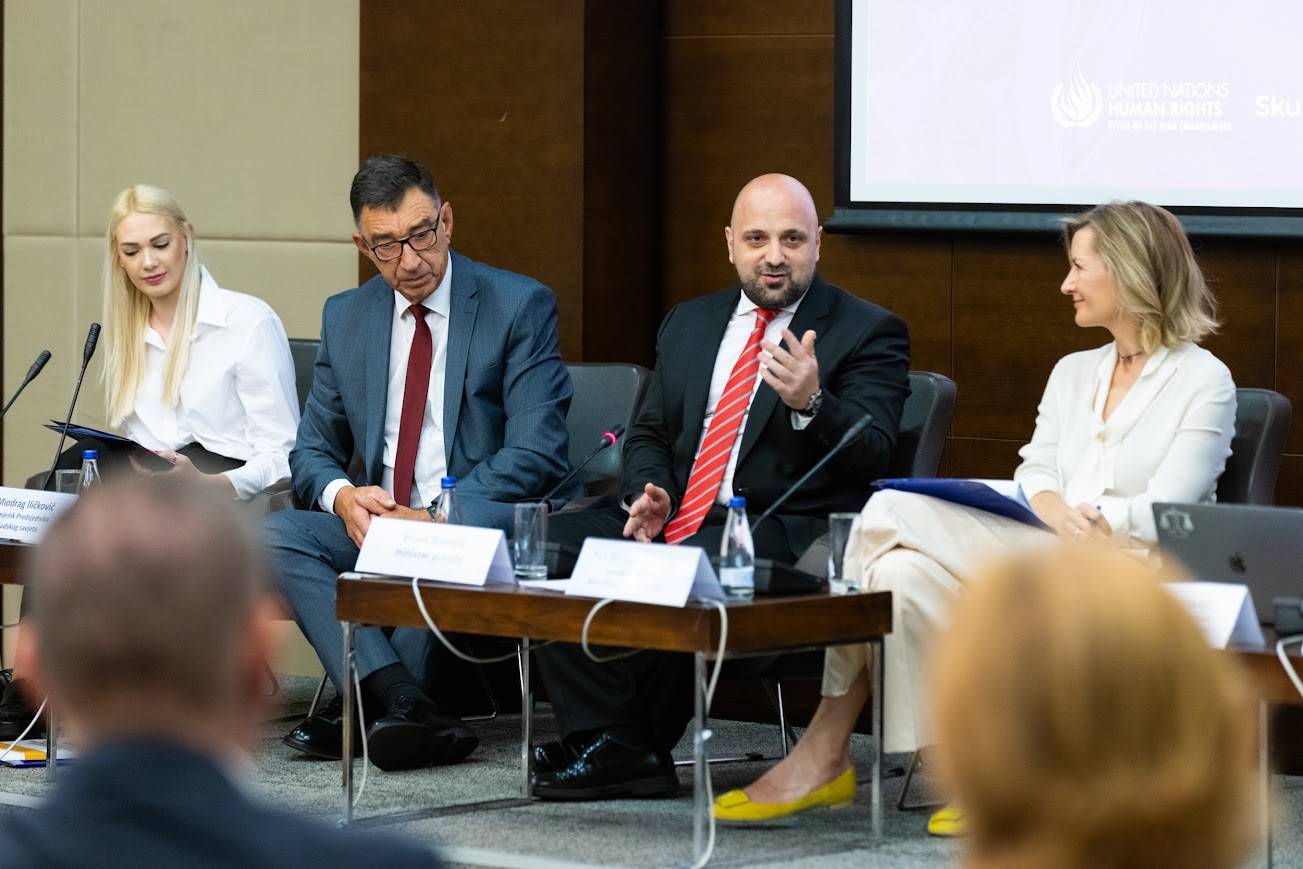
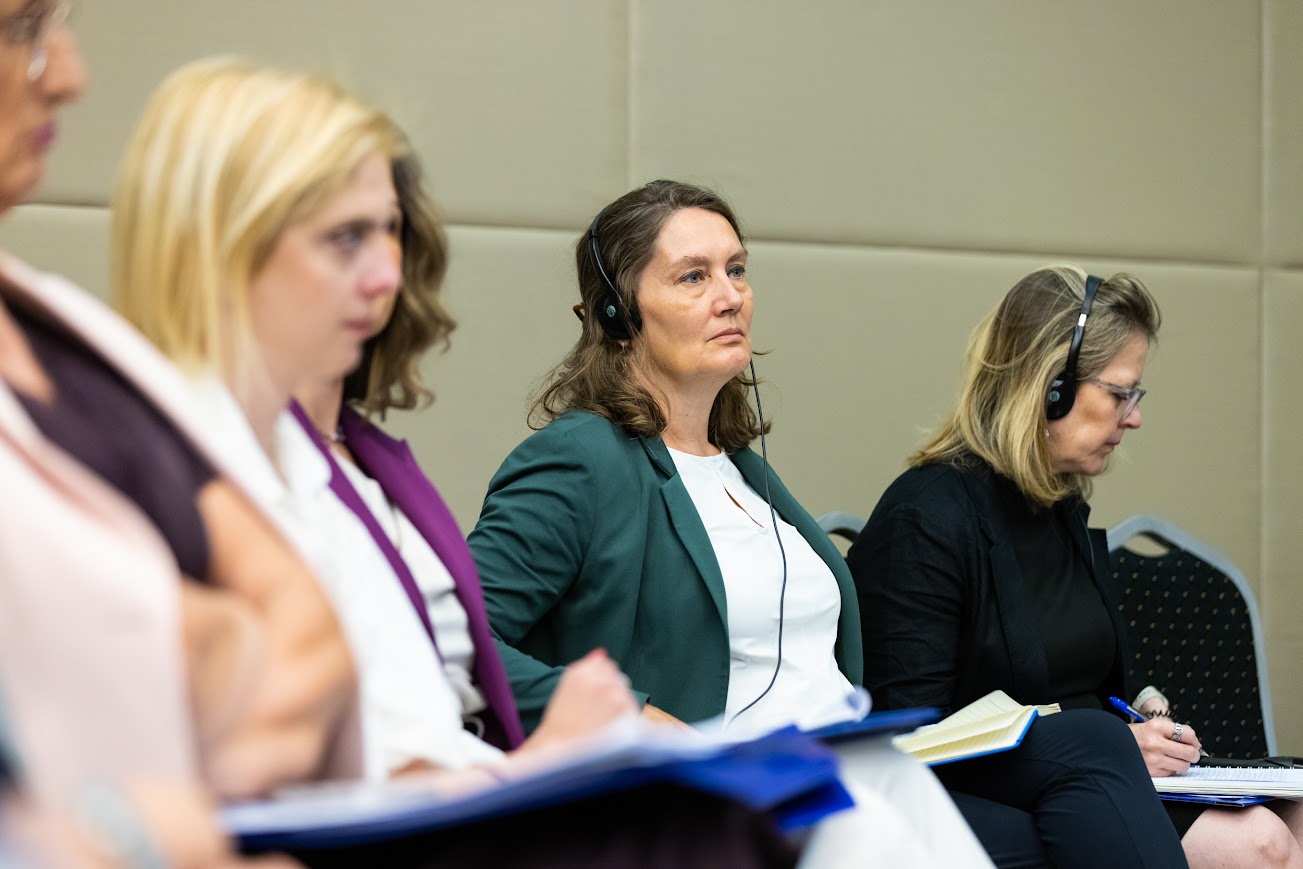
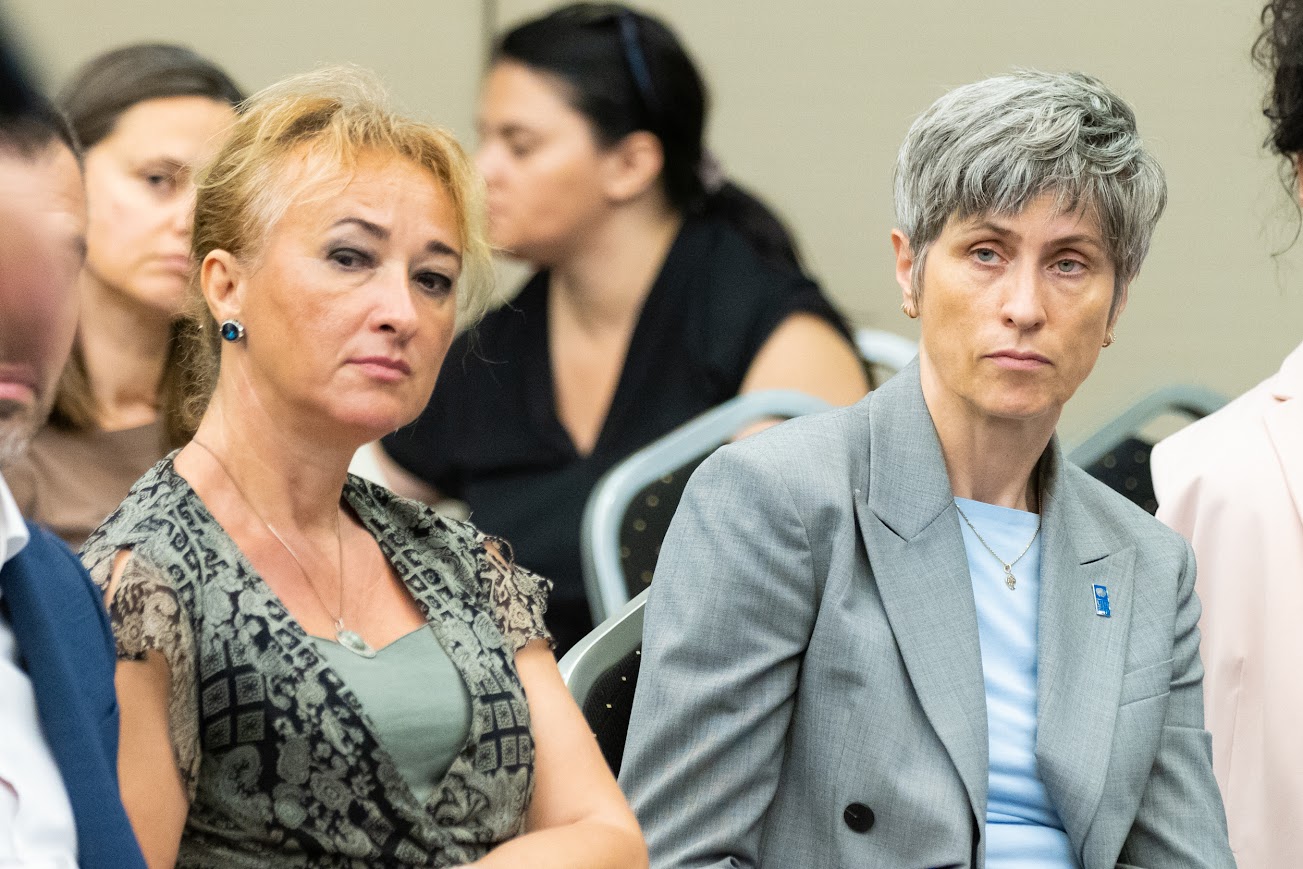
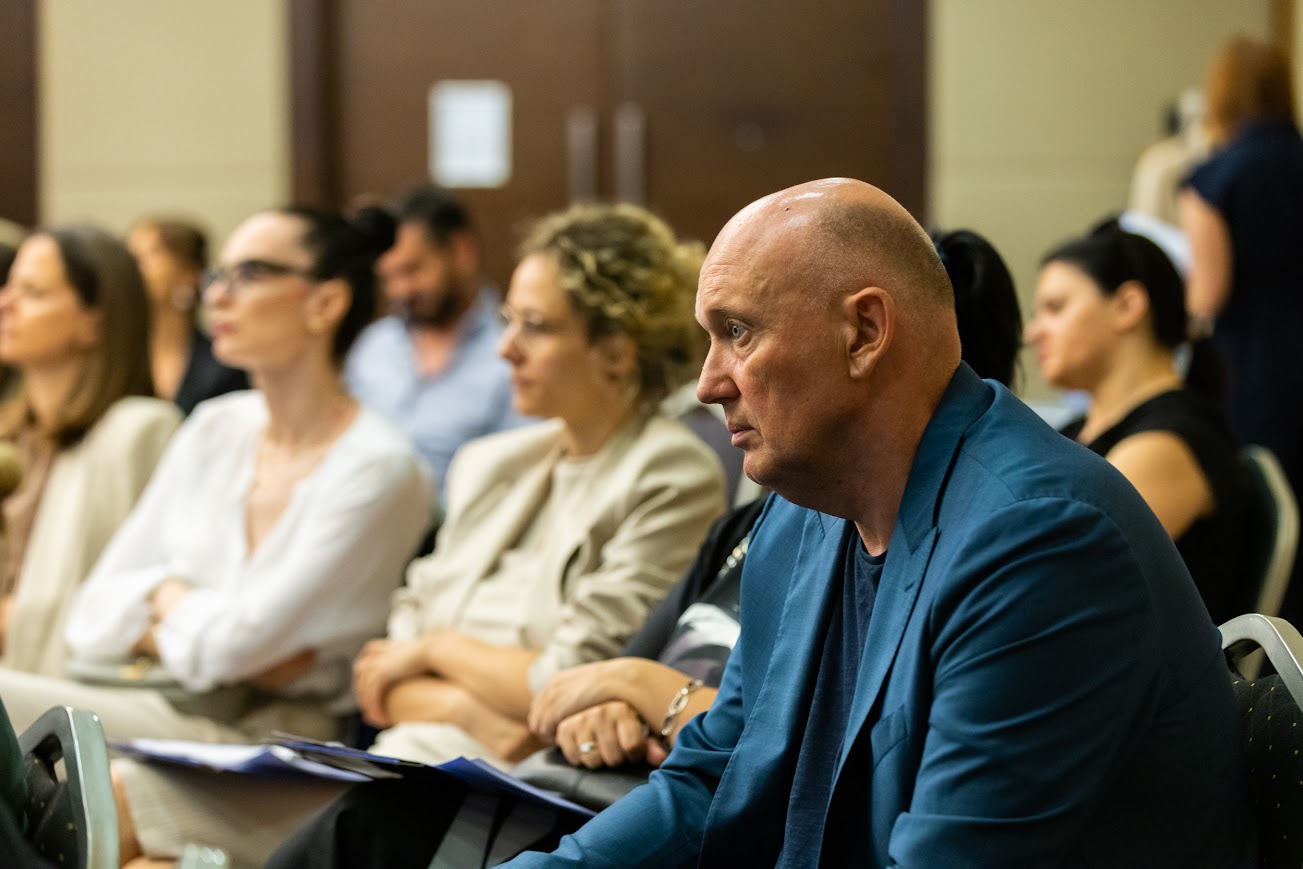
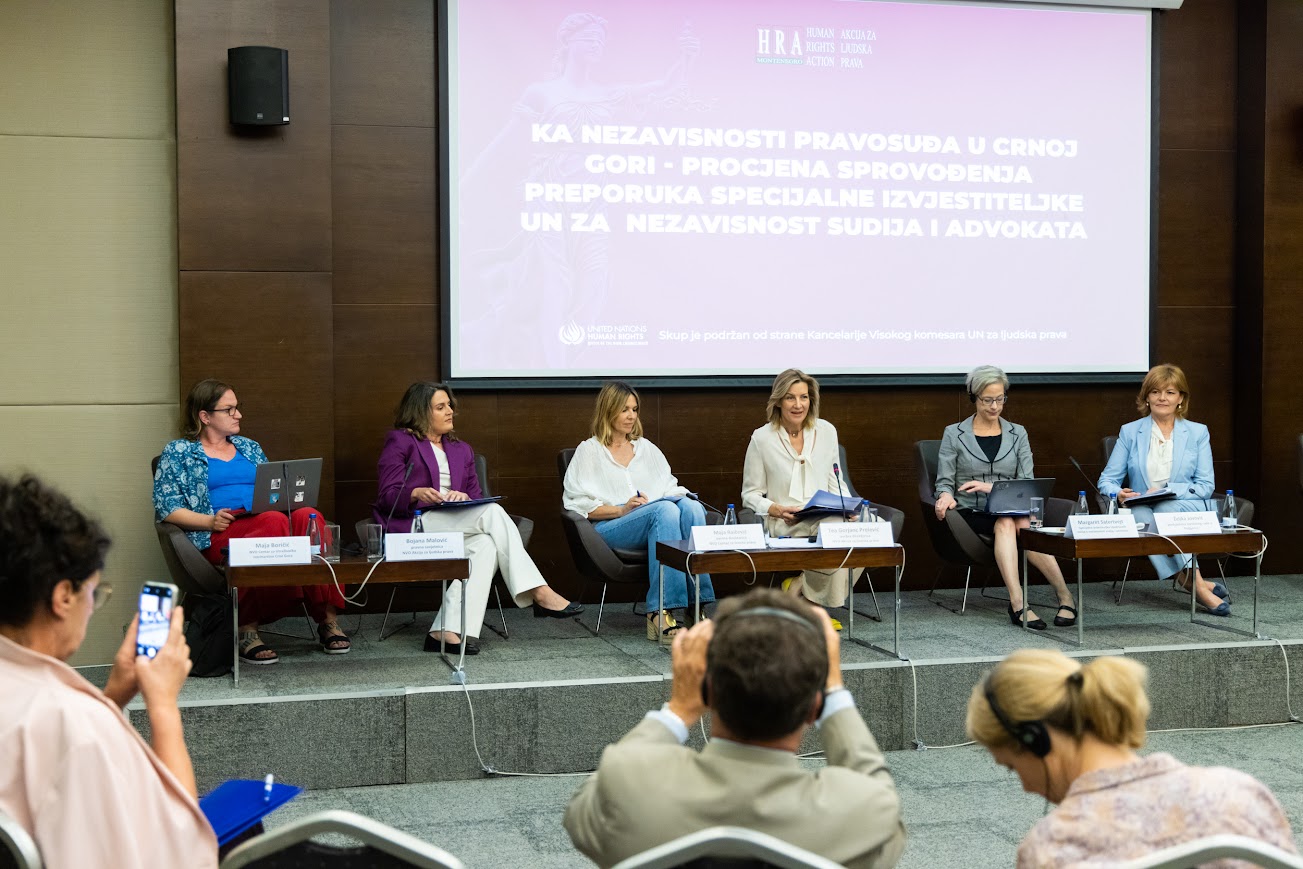
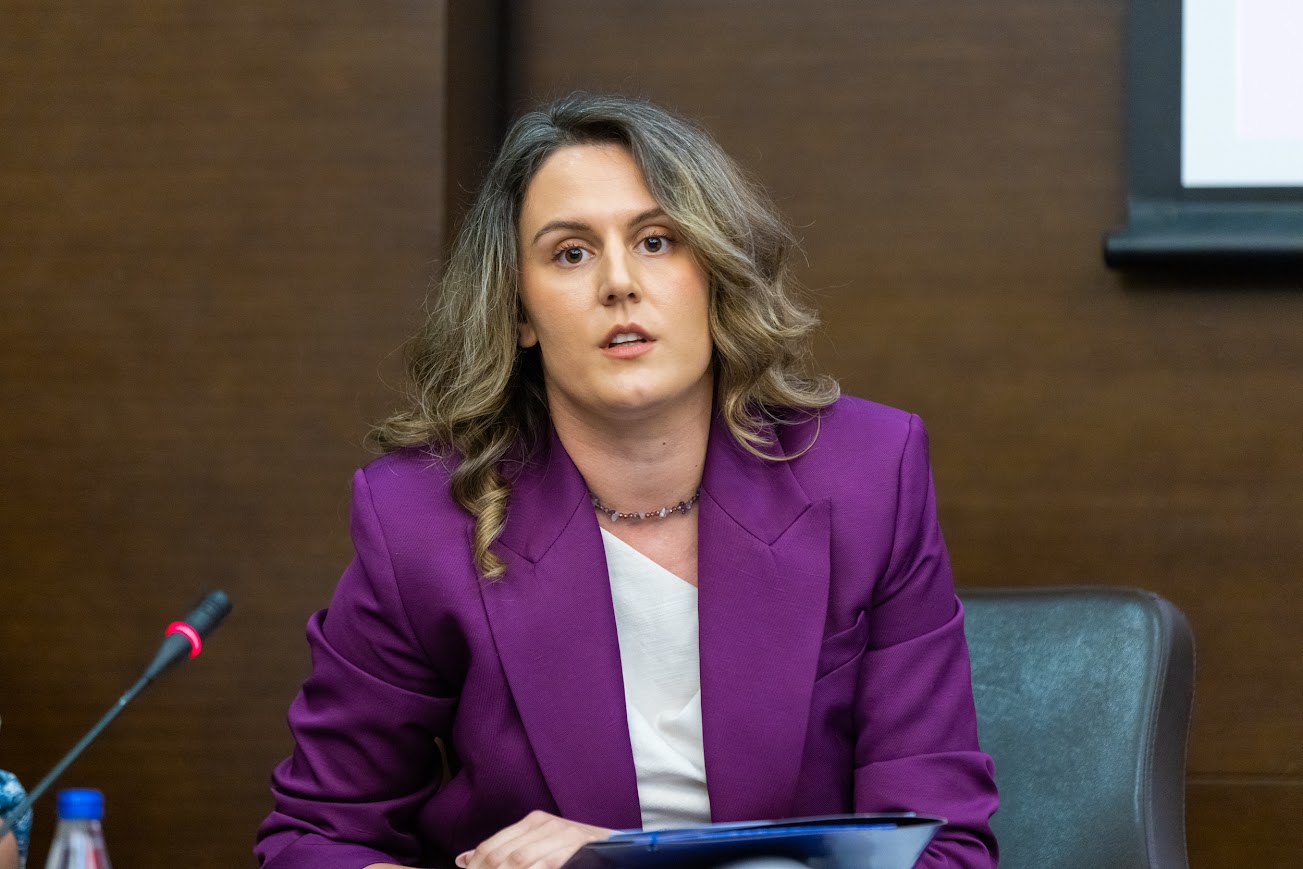
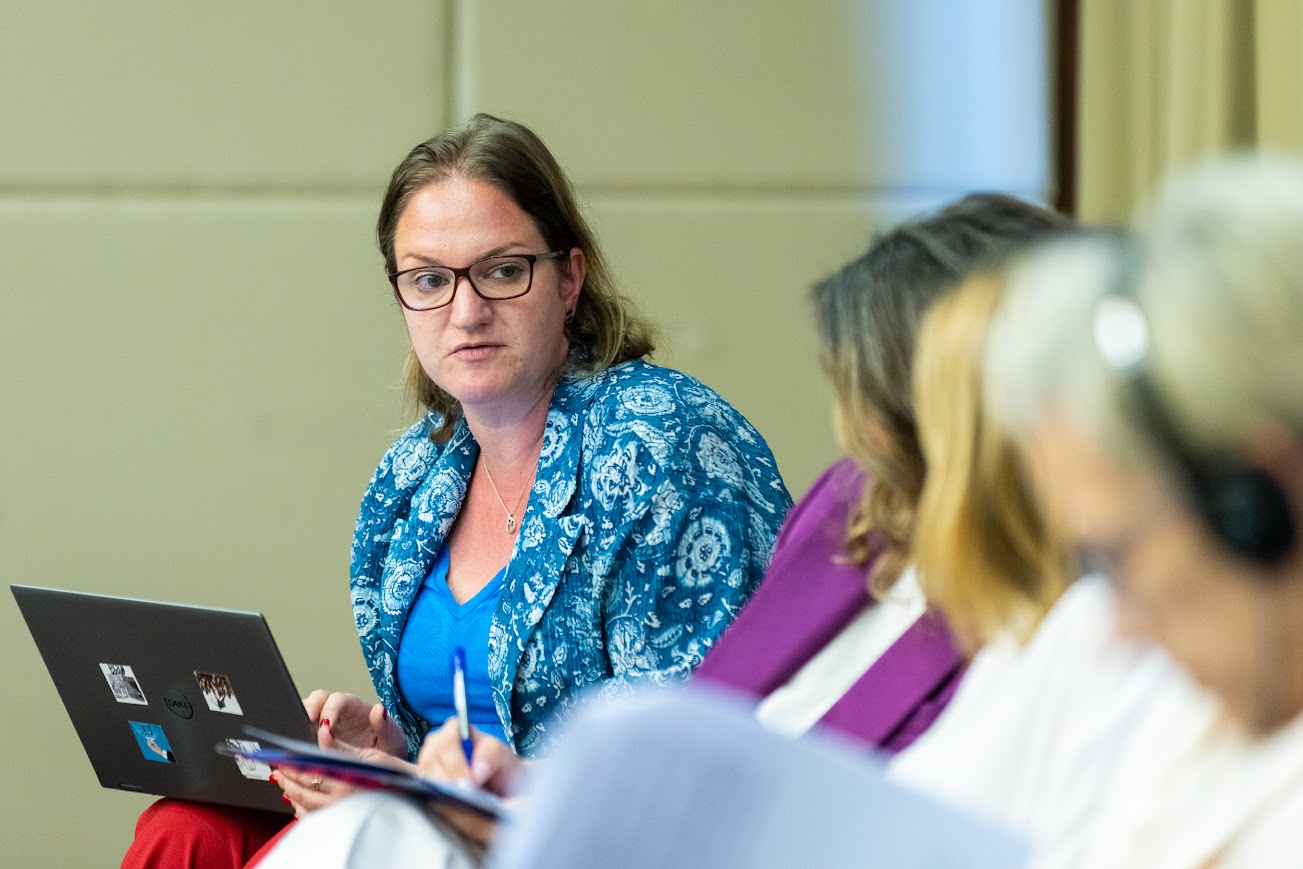
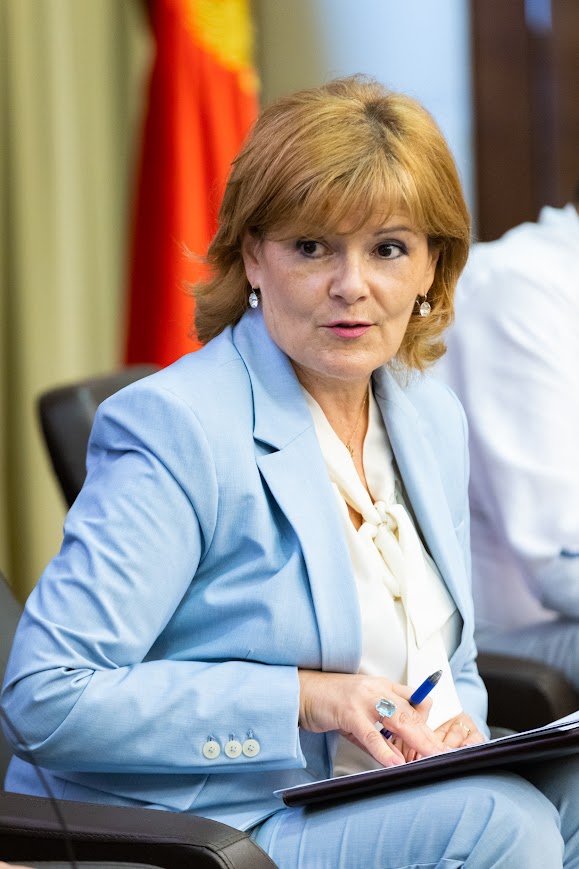
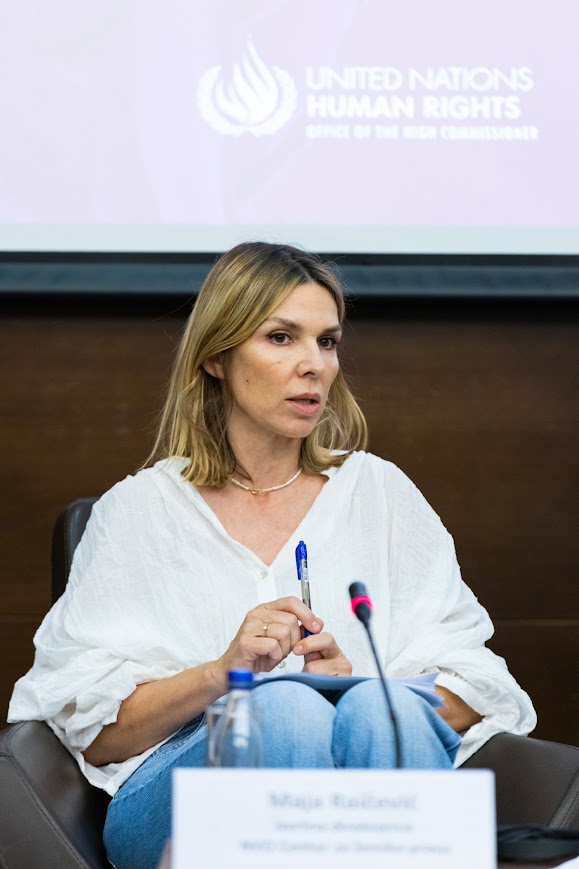
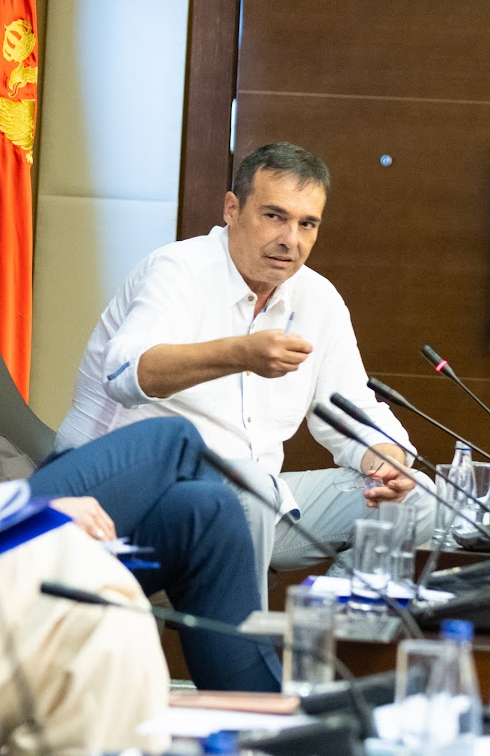
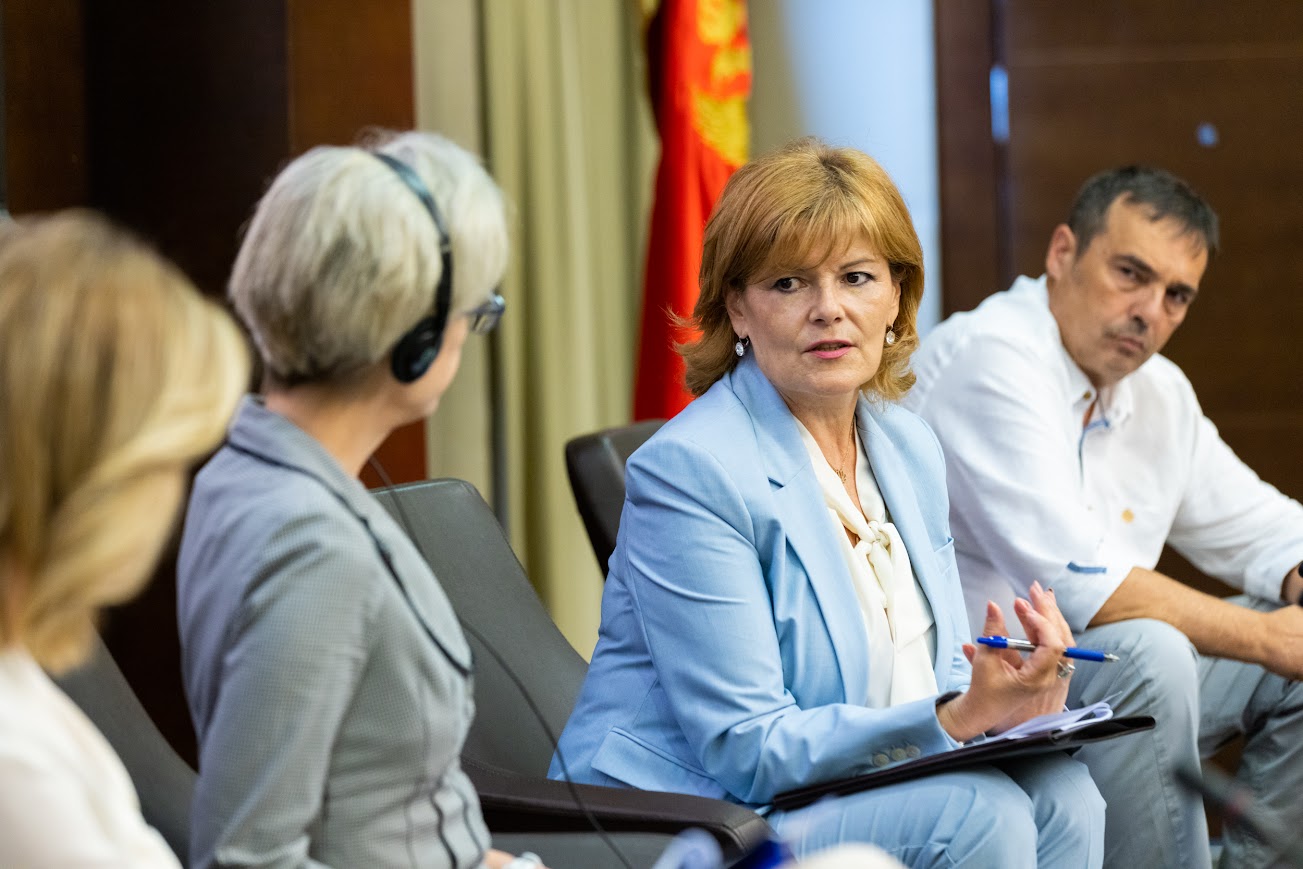
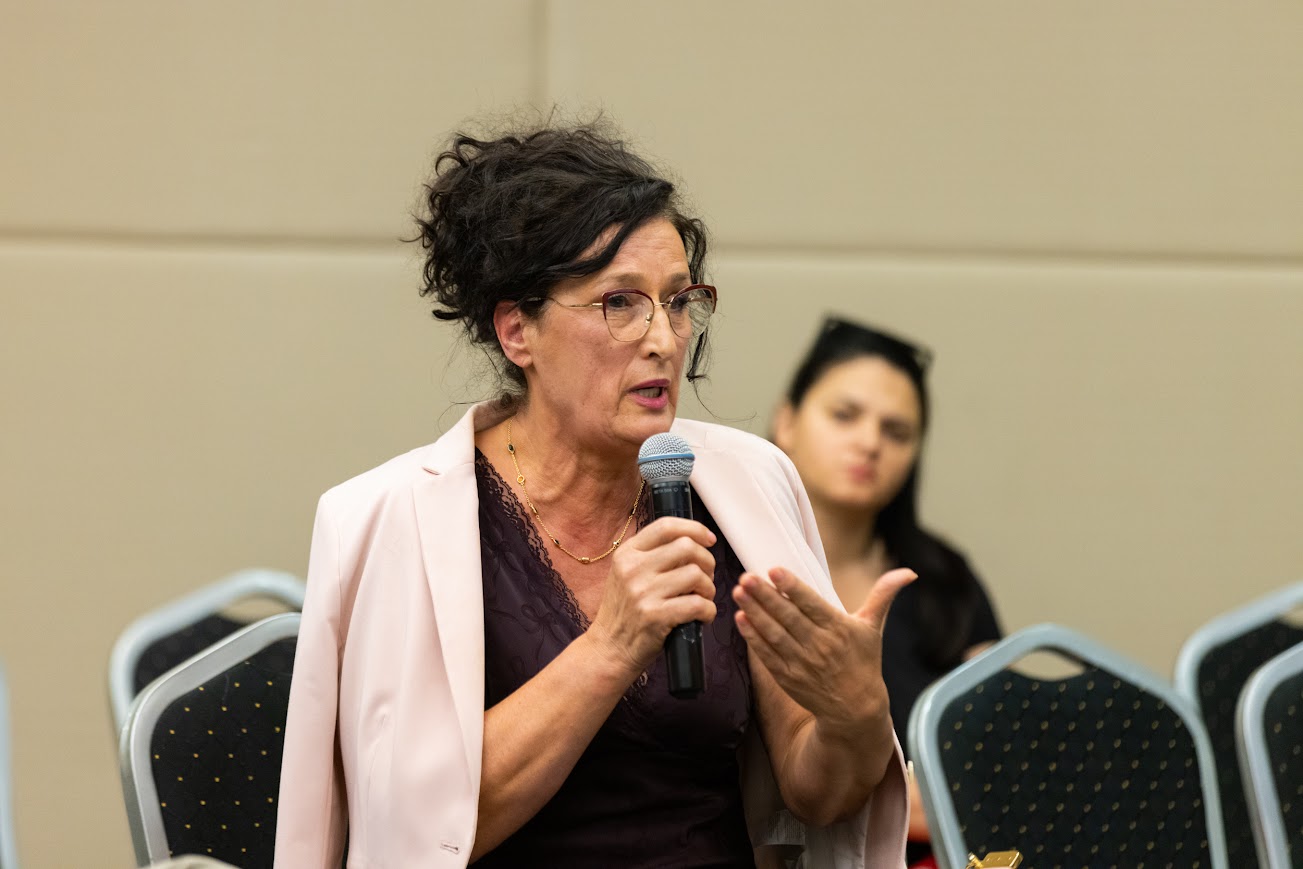
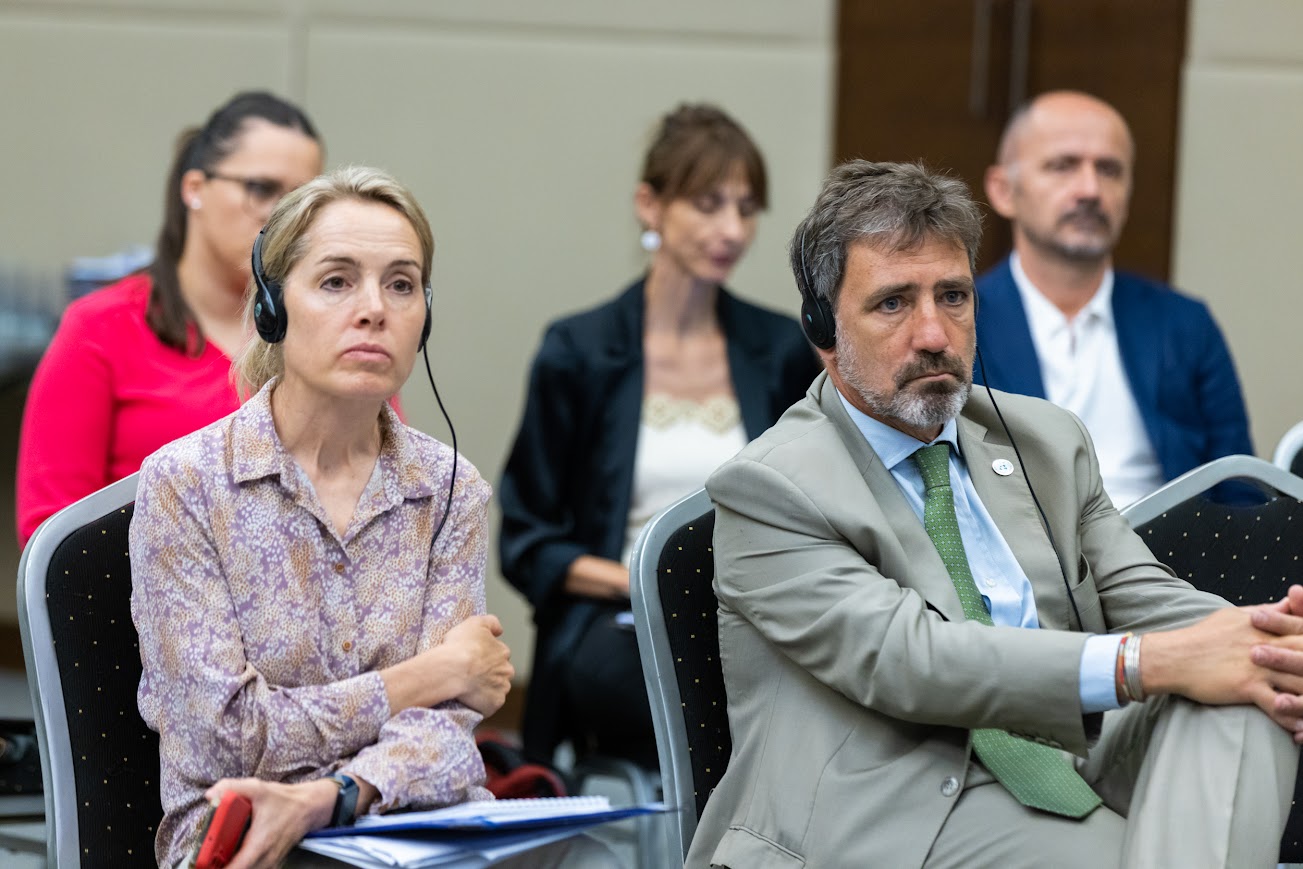
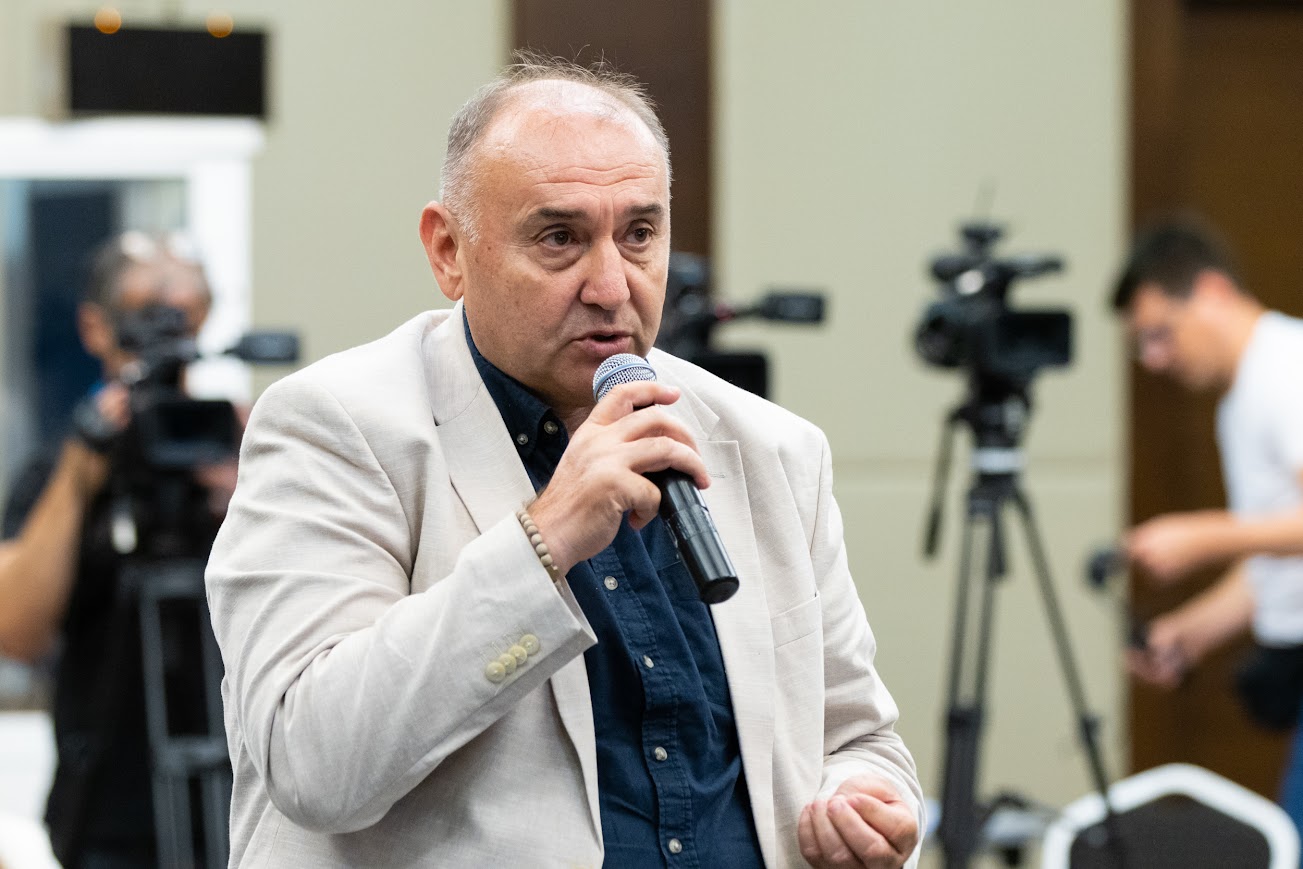
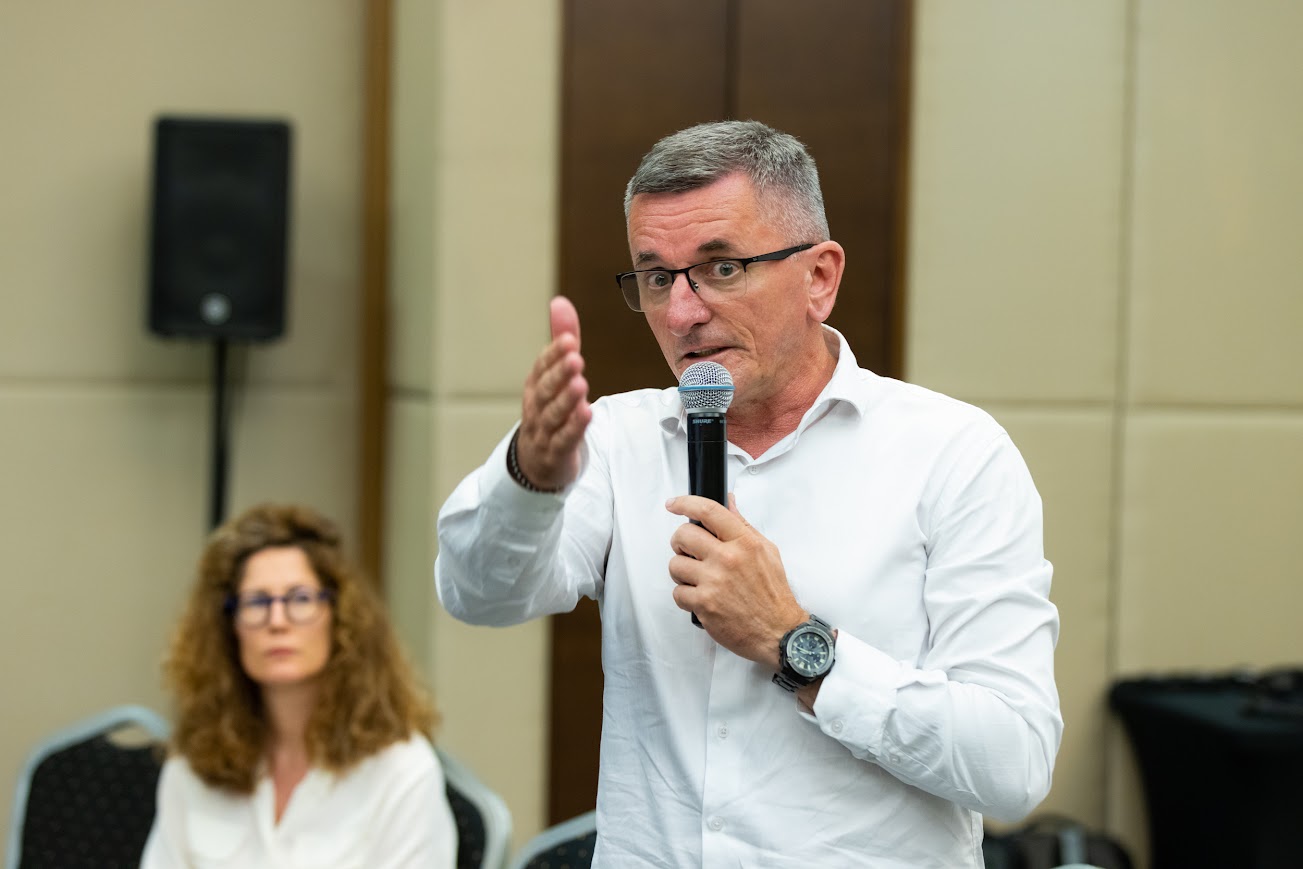



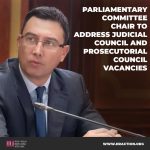
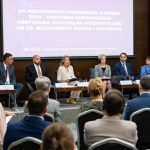
 English
English